Don’t miss Heidi Blake’s gripping, untold story of Putin’s assassination campaign. On sale now, November 19.
This is Part Two of a BuzzFeed News investigation.
Part One: Poison In The System
Part Three: The Man Who Knew Too Much
Part Four: The Secrets Of The Spy In The Bag
Part Five: Everyone Thinks He Was Whacked
Part Six: Holes In The Investigation
Part Seven: Christopher Steele's Other Report
The London square was still and cold when the body fell, dropping silently through the moonlight and landing with a thud. Impaled through the chest on the spikes of a wrought iron fence, it dangled under the streetlamps as blood spilled onto the pavement. Overhead, a fourth-floor window stood open, the lights inside burning.
The dead man was Scot Young. The one-time multimillionaire and fixer to the world’s super-rich had been telling friends, family, and the police for years that he was being targeted by a team of Russian hitmen – ever since his fortune vanished overnight in a mysterious Moscow property deal. He was the ninth in a circle of friends and business associates to die in suspicious circumstances. But when the police entered his penthouse that night, they didn’t even dust for fingerprints. They declared his death a suicide on the spot and closed the case.
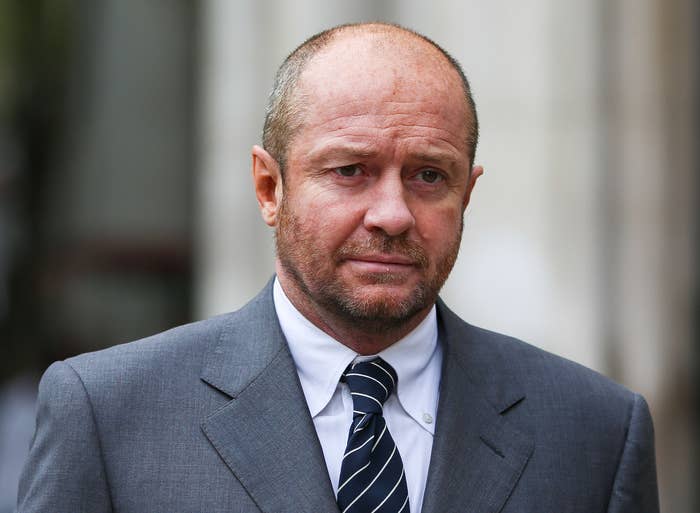
A two-year investigation by BuzzFeed News has now uncovered explosive evidence pointing to Russia that the police overlooked. A massive trove of documents, phone records, and secret recordings shows Young was part of a circle of nine men, including the exiled oligarch Boris Berezovsky, who all died suspiciously on British soil after making powerful enemies in Russia. The files reveal that Young lived in the shadow of the Russian security services and mafia groups after fronting for Berezovsky – a sworn enemy of the state – in a series of deals that enraged the Kremlin, including the doomed Russian property deal known as Project Moscow. British police declared the deaths of all nine men in Berezovsky’s circle non-suspicious, but BuzzFeed News can now reveal that MI6, Britain’s secret intelligence service, asked its US counterparts for information about each one of them “in the context of assassinations”.
Earlier this week, we revealed that US spy agencies had handed the British government high-grade intelligence that the Russian whistleblower Alexander Perepilichnyy, who died in Surrey in 2012, was likely assassinated on the direct orders of the Kremlin – but the authorities sidelined that and other evidence pointing to murder, instead declaring that he had died of natural causes. Today, we can reveal that US intelligence officials suspect a further 13 people – including Berezovsky and eight members of his circle – have been assassinated on British soil by Russia’s security services or mafia groups, two forces that sometimes work in tandem.
That intelligence – based on human sources, intercepted communications, and public material gathered by US spy agencies – has been shared with Britain in relation to all 14 deaths. Yet British police have ruled out foul play in every last case.
“The strongest conclusion is circumstances suggest Russian involvement in the deaths of these men”
Berezovsky was found apparently hanged in his bathroom in 2013. Police ruled it a suicide, but US intelligence officials said they suspect he was assassinated. His business partner, the Georgian oligarch Badri Patarkatsishvili, dropped dead of an apparent heart attack in 2008, as did their acquaintance Yuri Golubev, the cofounder of the troubled oil giant Yukos, who died in London in 2007. American spy agencies have intelligence suggesting they were murdered, and sources on both sides of the Atlantic said that Russia is expert at using poisons that kill without a trace – particularly by triggering cardiac arrest. Two British lawyers named in US intelligence records as possible victims of Russian hits – Stephen Moss, who also succumbed to a sudden heart attack in 2003 at age 46, and Stephen Curtis, who died in a helicopter crash in 2004 – may have become targets after helping the Russian oligarchs funnel money into Britain. Three of Young’s close friends and business partners – Paul Castle, Robbie Curtis (no relation to Stephen), and Johnny Elichaoff – all lost their lives in apparent suicides in the four years before Young himself died, and they were added to files kept by US intelligence agencies documenting suspected Russian-linked assassinations. In the coming days, BuzzFeed News will reveal the identities of the other people suspected to have been assassinated.
The story of this ring of death illuminates one of the most disturbing geopolitical trends of our time – the use of assassinations by Russia’s secret services and powerful mafia groups to wipe out opponents around the globe – and the failure of British authorities to confront it.
The intelligence pointing to a campaign of targeted killings in Britain comes amid mounting international concern that the Kremlin is brazenly interfering in the West, and as the investigation into Russian ties to President Donald Trump’s advisers gathers pace.
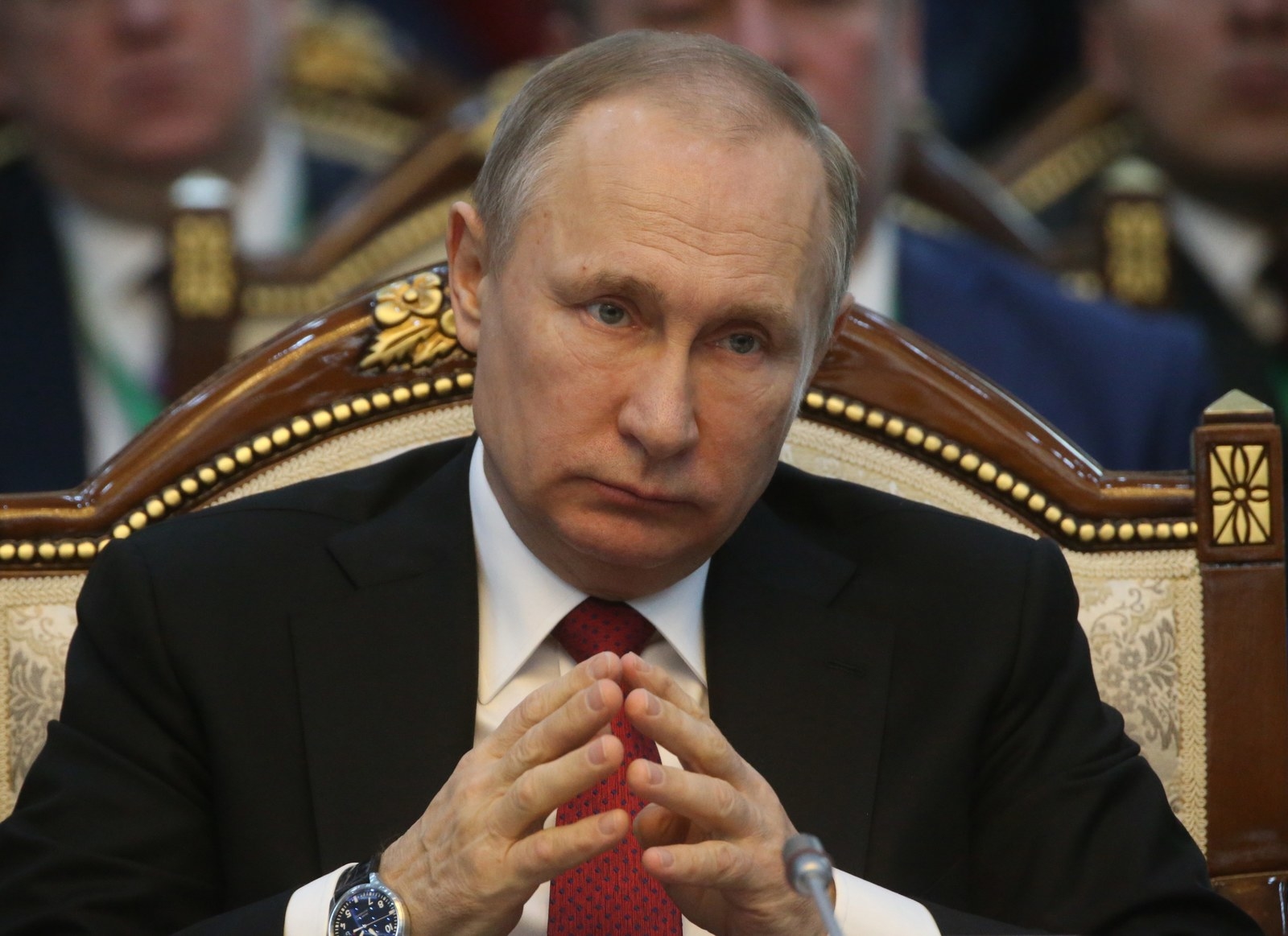
The Russian government passed new laws giving its agents a licence to kill enemies of the state abroad in 2006, the same year two assassins from the FSB, Russia’s spy agency, flew to London to poison the defector and one-time KGB agent Alexander Litvinenko with radioactive polonium. Last year, a British public inquiry found that Vladimir Putin had likely approved that assassination in an act of nuclear terrorism in the British capital that was impossible for the government to ignore. But high-ranking intelligence sources said other less glaringly obvious assassinations have gone unpunished.
Russian assassins have been able to kill in Britain with impunity over the past decade, 17 current and former British and American intelligence officials told BuzzFeed News. The reasons for Britain’s reticence, they said, include fear of retaliation, police incompetence, and a desire to preserve the billions of pounds of Russian money that pour into British banks and properties each year. As a result, Russia is making what one source called increasingly “bold moves” in the UK without fear of reprisals.
Got a tip? You can email tips@buzzfeed.com.To learn how to reach us securely, go to tips.buzzfeed.com.
Prime minister Theresa May is facing growing calls to respond to claims that her government has concealed evidence relating to Russian assassinations in Britain. In her six years as home secretary, she spearheaded the British government’s response to national security threats and presided over cuts of £2.3 billion from the national law enforcement budget that several senior officers have blamed for a drastic reduction in police capabilities. May personally intervened to delay the public inquiry into Litvinenko’s death, citing the need to protect “international relations” with Russia. And in the Perepilichnyy case, her government has withheld sensitive evidence from the inquest on “national security” grounds.
The core reason British authorities have turned a blind eye, a current senior national security adviser to the British government told BuzzFeed News, is fear. Ministers, he said, were not prepared to take the “political risk of dealing firmly and effectively in whatever way with the activities of the Russian state and Russian-organised crime in the UK” because the Kremlin could inflict massive harm on Britain by unleashing cyberattacks, destabilising the economy, or mobilising elements of Britain’s large Russian population to “cause disruption”. Deep law enforcement funding cuts mean “our capabilities are very weak”, he said. It was also impossible to rule out the risk of “general war with Russia” in the current climate, he said, and “if it were to happen it would happen very, very rapidly, and we would be entirely unprepared”. As a result, he concluded, ministers “desperately don’t want to antagonise the Russians” and senior figures in government had told him bluntly that there was “no political appetite to deal with the Russian Federation”.
“Is there an appetite to take on the political risk of dealing firmly with the activities of the Russian state and organised crime in the UK? Absolutely not”
Senior US intelligence officials said they had been watching the pattern of suspected assassinations across the Atlantic with mounting alarm, concerned that it could spread to American shores. Their fears intensified following the strange death of the Russia Today founder Mikhail Lesin – who died of blunt force trauma to the head, neck, legs, arms, and torso in a Washington, DC, hotel room in 2015. Investigators announced that he had sustained his fatal injuries by falling while drunk – but a former senior national security official, echoing others, told BuzzFeed News the death had been privately viewed as “suspicious”, and there was “concern” that the Russian government would “start doing here what they do with some regularity in London”.
The existence of American intelligence linking the 14 deaths in Britain to Russia was confirmed by four current US intelligence officials with direct knowledge of the information the spy agencies had gathered on each case. In certain instances, they said, it was possible to say with high or moderate confidence that assassinations had been carried out on Putin’s command. In others, it could not be determined with certainty whether individuals had been targeted by the Kremlin, murdered by Russian mafia figures, or deliberately driven to suicide – and they could not rule out the possibility that some of the deaths could be unconnected to Russia. But in all 14 cases, “based on what we know and intelligence gathered in the field and analysed,” one of the officials said, “you can safely say that the strongest conclusion is that circumstances suggest Russian involvement in the deaths of these men and then demand more investigation from UK."
A CIA spokesman declined to comment on intelligence matters, but Steven Hall, chief of Russia operations at the agency until 2015, told BuzzFeed News that the 10-year diplomatic standoff triggered by the investigation into Litvinenko’s killing had imposed a “significant hindrance” on relations between Moscow and London. After that murder, the UK authorities had failed to respond firmly when people in Britain “started dying on a regular basis due to Russian assassinations”. MI6 officials, he recalled, had repeatedly told him “we know the Russians have an active programme of killing people in the UK that they don’t like” but had blamed the failure to prevent the killings on Scotland Yard, the HQ of Britain’s premier police force. The result, Hall said, was chilling. Russian agents were able “to conduct these operations in the UK relatively easily," he said. “Basically, get to the UK, and kill.”
“We know the Russians have an active programme of killing people in the UK”
A senior US intelligence official, who is still serving and cannot be named, told BuzzFeed News that the British have “downplayed involvement of Russians on their soil for years”. Reflecting the views of several sources, he added: “The Brits made a deal years ago that the Russians could come in and spend money on housing and stimulate the economy and they’ll look the other way.”
Richard Walton, Scotland Yard's counter-terror commander until last year, acknowledged that there had been a series of suspicious deaths connected to Russia over the past decade. While the anti-terrorism branch of the force was “never complacent”, he said, investigating such cases is “very, very dangerous territory” and “completely out of the scope of local police” who have no experience of the sophisticated tactics at play. “It is a completely different dimension,” he explained. “When you come up against an entire country with nuclear power, they have tremendous resources.”
Walton said Russian assassins are often extremely adept at “disguising murder”. They are expert at staging suicides by planting evidence to make victims appear to have been depressed, counter-terror officers told BuzzFeed News, or even using drugs and psychological tactics to drive them into taking their own lives. In the case of state assassinations, Putin’s government had amassed “a suite of chemical and biological agents that were developed for targeted assassinations” so killers could do their work without leaving a trace, a former top-ranking MI6 official said. And Britain’s secret service was hamstrung in its ability to share intelligence pointing to Russian complicity, sources said, because of the need to protect confidential informants.
So even when intelligence strongly pointed to an assassination, police and intelligence sources said, there was often too little evidence to make a case stand up in court. In such instances, they said it could be easier to pronounce a death unsuspicious than to stoke diplomatic tensions and public alarm over an accusation of political assassination that probably wouldn’t stick.
Several senior Scotland Yard and MI6 sources strongly denied that the British government would ever cover up an assassination for political reasons. But others disagreed. Carl Davenport, a former Scotland Yard counter-terror officer, said the government withholds evidence from coroners “quite a lot” in order to pass off Russian-linked deaths as suicides, in part because it’s “diplomatically easier” and they are “scared of angering Russia, who are known to be quite ruthless”. Nigel Anderson, a former MI6 officer, said there is a clear pattern of “brazen” Russian assassinations in Britain “right out in the daylight” – and it has been allowed to continue because “the UK is soft on such things”.
An official spokesperson said the government “takes seriously its obligation to protect people in the UK from hostile state activity – including assassinations”. While declining to comment on national security matters, the spokesperson said overall law enforcement spending has been protected since 2015 and the police “have the resources they need”.
But police and intelligence sources said the arrival in Britain of a wave of oligarchs – some fleeing Putin’s autocratic regime, others seeking a place in the West for their families and cash – coincided with the diversion of almost all Britain's national security resources into the fight against terrorism after the 11 September attacks in the US in 2001. That, they said, had allowed London to become a crucible of Russian secret service and mafia activity. Greg MacKay-Lear, a former Scotland Yard counter-terror officer, said the government had made a “tactical and strategic blunder” by taking its eye off Russian operations in London at a critical time.
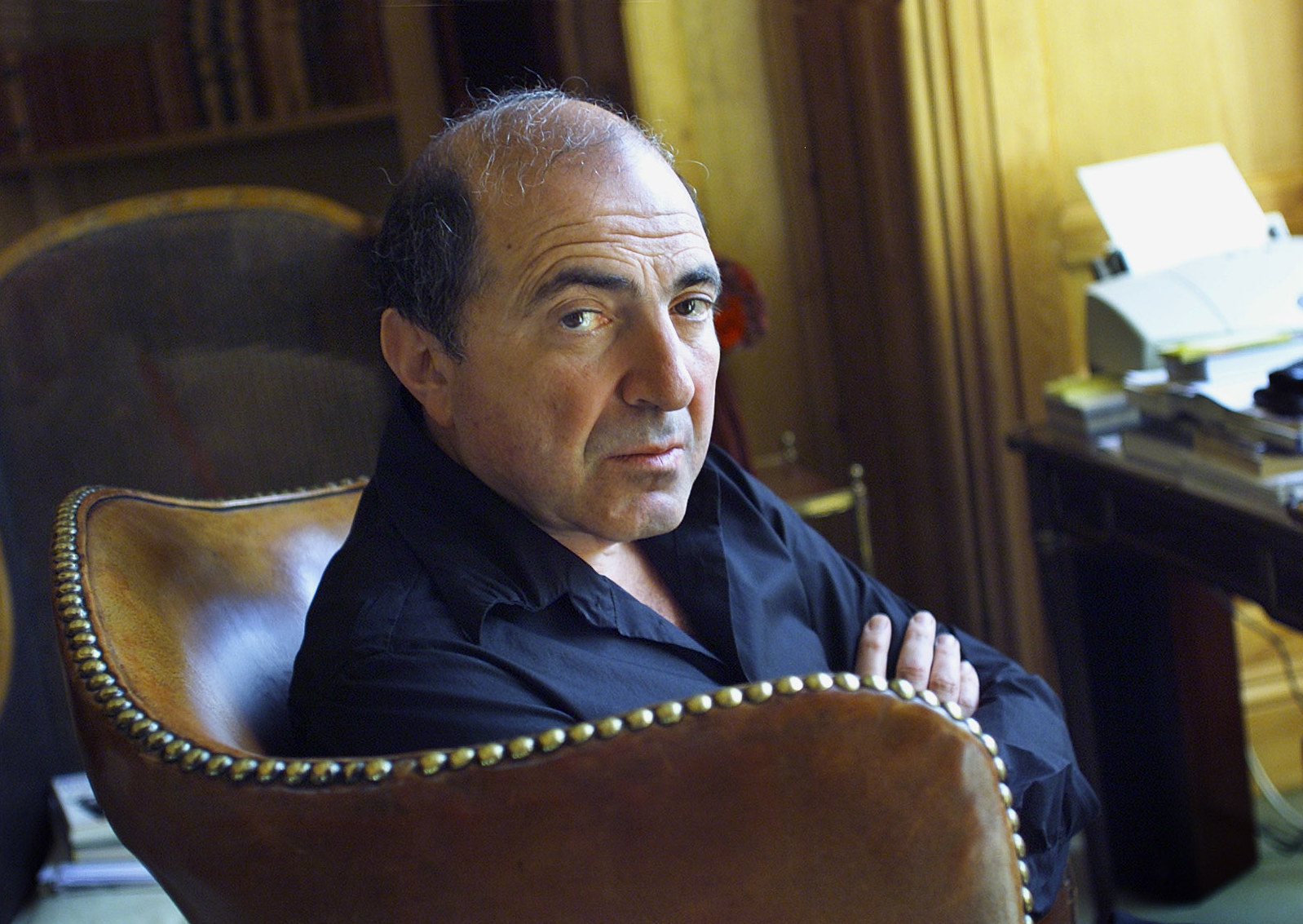
Berezovsky, a flamboyant oligarch and mathematician, was the linchpin of a group of Russian exiles, including Litvinenko, who made a home in Britain after Putin took power in 2000 and quickly cracked down on competing power sources, including oligarchs who dared to buck him. Berezovsky had initially supported Putin but became a leading enemy of the president’s regime, using his fortune to finance an international campaign of opposition from his new home in an exclusive enclave of Surrey just outside London. The Russian president holds great sway over his country’s super-rich – doling out vast wealth to his favourites and impoverishing those who cross him. But as Putin demolished Berezovsky’s business empire within Russia, Young was part of a close network of associates who helped funnel his money through offshore trusts and front for his deals in London and – more dangerously – in Moscow.
BuzzFeed News obtained 250 boxes of documents containing secret details of Young’s perilous business dealings on Berezovsky’s behalf, recovered files from his computers, forensically imaged his phones, reviewed hours of surveillance footage and covert recordings, interviewed more than 150 people, secured the police evidence bag that included his bloody shoes, and examined vital clues from the scene of his death that the police missed or ignored.
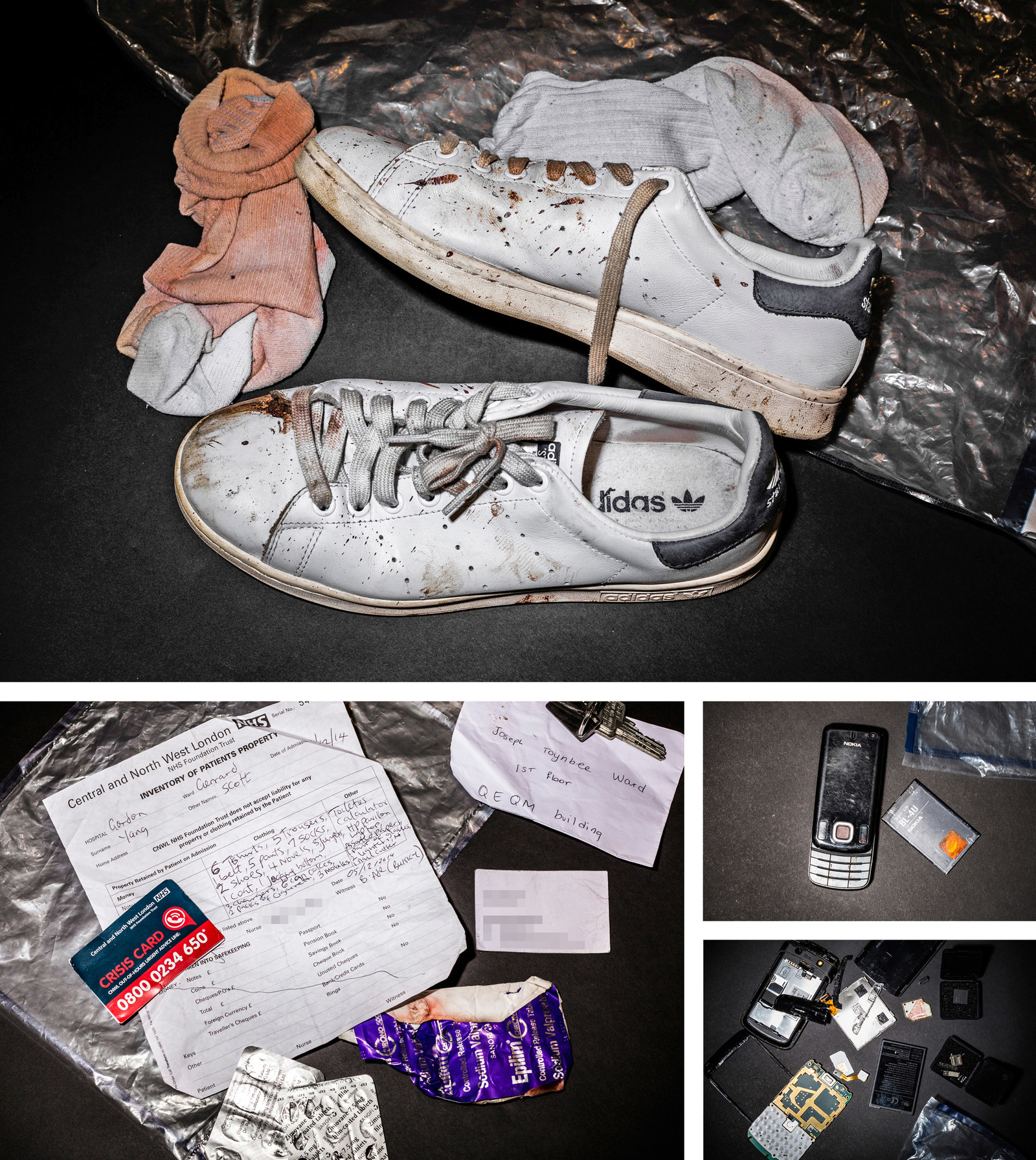
The evidence reveals Young became embroiled in a series of perilous deals with Berezovsky, including the Project Moscow development in the Russian capital, doing everything he could to cover his tracks because he knew the oligarch’s involvement would anger the Kremlin. Privately, he boasted that his Russian investment partner had deep connections to the Russian security services, and told a fellow investor that they would be protected because he had “paid off” the powerful mayor of Moscow, Yury Luzhkov. But that assurance proved hollow: The scheme fell apart, and Russia’s chief prosecutors went after the investors for “economic crimes”. Luzhkov categorically denied having any involvement in Project Moscow or accepting corrupt payments, while Young’s Russian business partner called it “the cleanest deal you can imagine” and noted that no one was ever charged with any crimes.
In the years after the scheme collapsed, documents suggest FSB spies monitored Young’s activities. He became so terrified of assassination as eight of his associates died in rapid succession that he sought protection from British gangsters linked to the Russian mafia. And in his final years, Young secretly helped broker another deal with Berezovsky that enraged the Russian government to such an extent that Andrey Lugovoy – one of the two assassins sent to poison Litvinenko, according to the UK public inquiry – called on the Russian state to crack down on all those involved.
Young’s activities had attracted such concern, one US intelligence source told BuzzFeed News, that his communications were being tapped by the US National Security Agency. “This guy Young: looks like there’s NSA intel on him,” he said, adding: “Comms were intercepted.” The intelligence gleaned was sensitive enough, the source said, that some information about Young had been marked Top Secret – the highest classification level, reserved only for information that would cause “exceptionally grave damage” to national security if it became public.
We rebuilt the phone in Scot Young’s pocket when he fell
Tap the phone buttons to scroll through the texts
Berezovsky and many of his dead associates were so deeply connected to organised crime in Russia that intelligence sources said it was difficult to tell whether orders to kill them may have come from the government, the mafia, or both. Mark Galeotti, an expert in the international activities of the Russian mafia, said the country’s security services frequently cooperate with organised crime groups. “How it works is an order comes down from the top saying this person needs to die,” he said, and the security services have to work out “What is the most efficient way of doing this?” That might be to send state agents to conduct a sophisticated and undetectable killing, he said, or it may be simpler to enlist some “hoodlums” to carry out a crude hit. At the same time, Galeotti said, “technically challenging organised crime killings” are often carried out by “state agents basically moonlighting”.
Walton, the former Scotland Yard counter-terror chief, said the failure by the force’s homicide team to carry out even the most cursory investigation into Young’s death was “really alarming”, and he was “astonished that there weren’t forensics done”. Given Young's fears for his safety and his connections to Berezovsky and other prominent Russians who had died suspiciously, Walton said, “that should have been treated as a suspicious death from the off”.
After Scotland Yard shut down its investigation, four people remained determined to get to the truth. Young’s two daughters, Sasha, then 20, and Scarlet, then 22, found out they had lost their father only when the news broke in the papers two days later, because police had failed to inform them. They felt at once, Sasha said, that he had been murdered. Young had called them both sounding calm and cheerful minutes before his body was found impaled on the railings. They knew about his association with “dangerous people” such as Berezovsky, and he had told them repeatedly that his life was at risk. “We had zero belief that he did this to himself,” said Sasha.
They phoned Young’s close friend Jonathan Brown, a smoked-salmon mogul based in Miami, and told him through sobs that their father was dead. Brown had invested millions in Project Moscow at Young’s request and said his first thought on hearing the news was “that he’d been murdered, like everyone else”. If his friend had been “fucking whacked”, he had two questions: Who was responsible, and, “Am I next?” He got on the first plane to London and rushed to see Sasha and Scarlet. Then and there, the three of them made a pact: If the police weren’t going to investigate this, then they would.
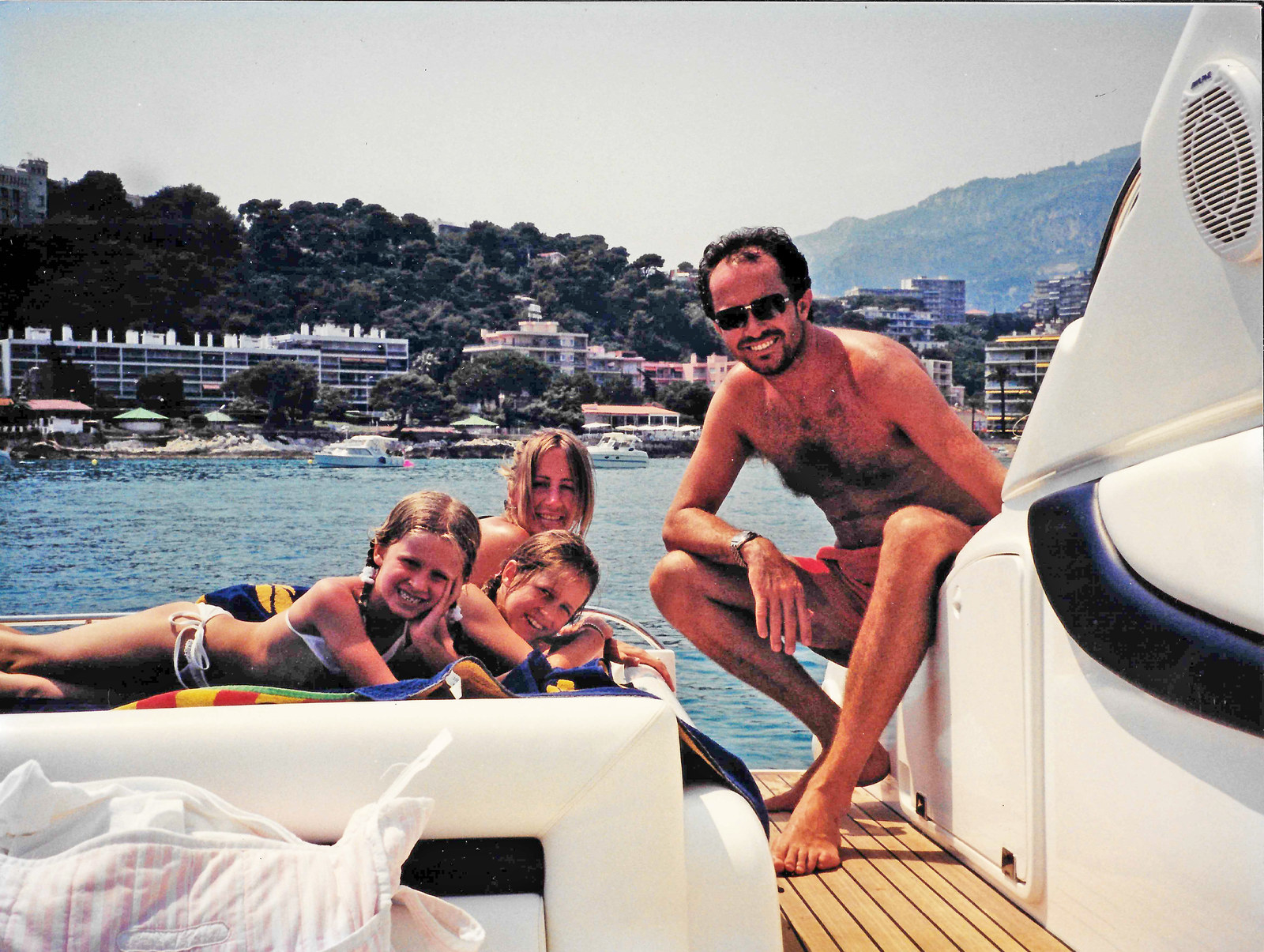
Meanwhile, Young’s ex-wife Michelle was equally determined to crack the case. The couple had spent the past eight years embroiled in a high-profile divorce battle over a £400 million fortune she accused Young of stashing offshore when Project Moscow imploded. Now she was certain that he had been murdered – and that his killer had made off with the money. “I do actually find it shocking that the police failed to investigate,” she said. She enlisted armies of private investigators and forensic accountants to help her get to the bottom of it.
BuzzFeed News began its own investigation into Young’s death – and its links to eight other cold cases – shortly after police ruled out foul play. This is the story of a group of men who lived lives of extraordinary wealth, secrecy, and danger – and who died in the shadow of a growing threat from Russia that the British authorities have chosen to ignore.

Scot Young was easing his Porsche up the gravel drive of his magnificent 200-acre mansion in Surrey when his then-wife Michelle came running through the topiary. “There’s a strange man inside and I can’t get him out!” she said. “Shall we call the police?”
Young marched through the grand, columned entrance to find a small, suited, black-eyed stranger settled comfortably in an armchair. “Welcome to my home!” the intruder boomed, in a thick Russian accent, throwing his arms wide. “How much do you want for it?”
This, Young liked to tell his friends, was the first time he ever laid eyes on Boris Berezovsky. The story’s punchline was that he hadn’t known the man was one of Russia’s richest tycoons, so he told Berezovsky to “fuck off”. But within a matter of weeks, Young had accepted the billionaire’s offer of £20.5 million and handed over the keys.
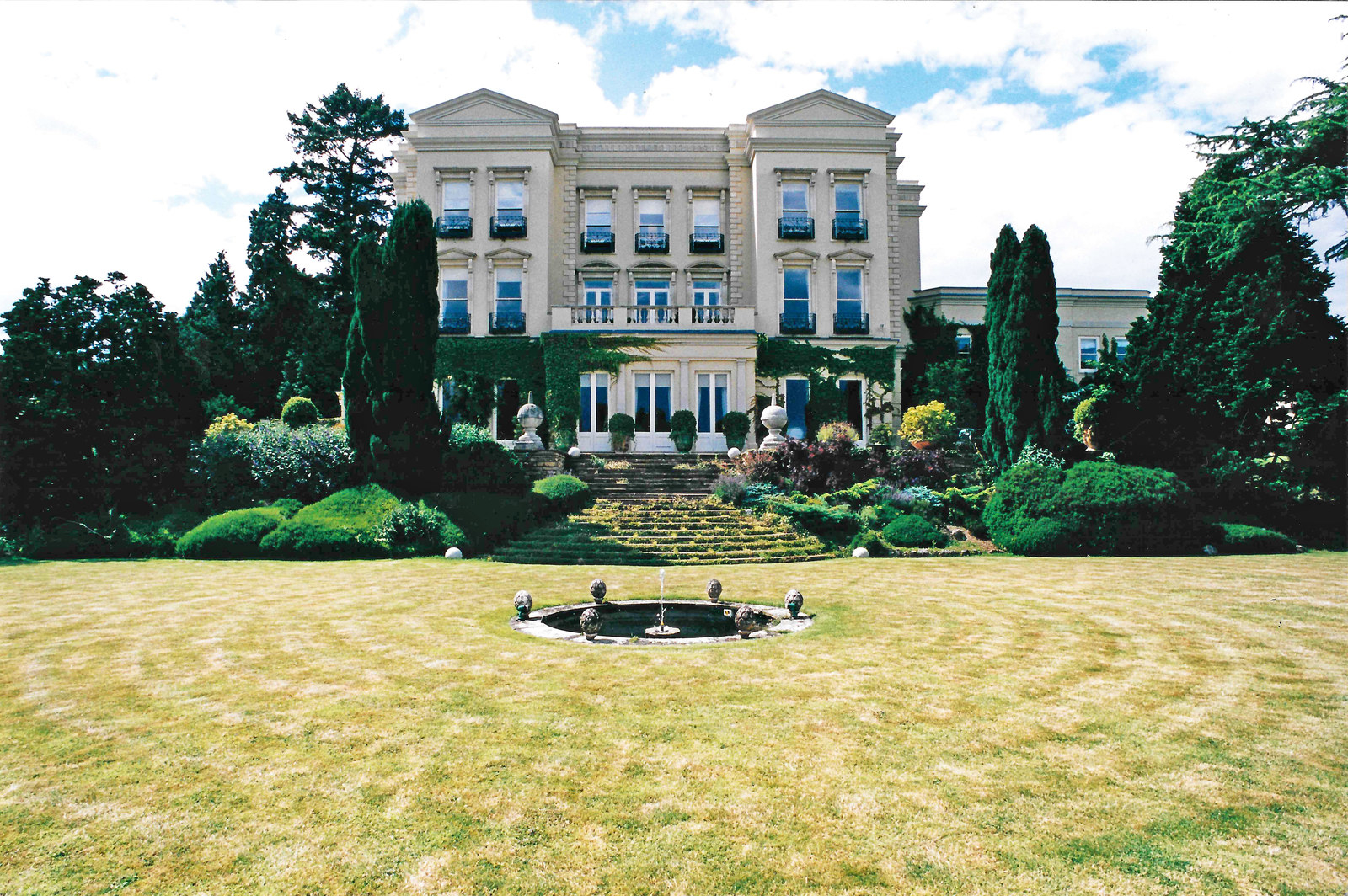
The year was 2001, and Berezovsky had recently fled to Britain after a bitter falling-out with Russia’s new president, Vladimir Putin. He settled in this lush corner of Surrey – with its follies, lakes, and roaming deer – and was joined by his best friend and business partner, Badri Patarkatsishvili, who bought a grand manor house nearby. Young moved with his wife and two young daughters to another palatial home across the Wentworth golf course.
“Boris and Badri”, as they were universally known, were an inseparable duo. Berezovsky was a short man with massive presence: voluble, impulsive, and given to impassioned flights of speech about Mother Russia. Patarkatsishvili was the opposite: serene and avuncular, with a fondness for fur hats and a white moustache that twirled at the corners. For Young – who grew up in a tenement in Dundee and cut his teeth hustling for deals in the port city’s smoky pubs and clubs – to enter the inner circle of the banished Russian billionaires was to be thrust into an exotic and unimaginably wealthy world. But the association was also fraught with danger. “Boris was public enemy number one,” one of Berezovsky’s closest Russian advisers told BuzzFeed News. “Anyone close to him was an enemy of the state.”
The two oligarchs had built up a vast business empire in Russia in the post-communist era, when President Boris Yeltsin’s cronies bought up former state assets at rock-bottom prices. The two men’s financial affairs were inextricable: They jointly owned a group of Russian newspapers and TV channels, claimed a shared interest in the oil giant Sibneft, and controlled Aeroflot, the former state airline.
Berezovsky – who had been a high-ranking member of Yeltsin’s government – viewed himself as the kingmaker who had plucked Putin out of obscurity. But when his protégé expanded his power and quashed opposition, Berezovsky deployed his newspapers and TV channels to launch blistering attacks. Enraged, Putin warned publicly that oligarchs who stepped out of line would receive “a crushing blow on the head”. Days later, while sunning himself on the Cap d’Antibes, Berezovsky received a summons for interrogation by Russian prosecutors over allegations of fraud and embezzlement. He never returned to Moscow.
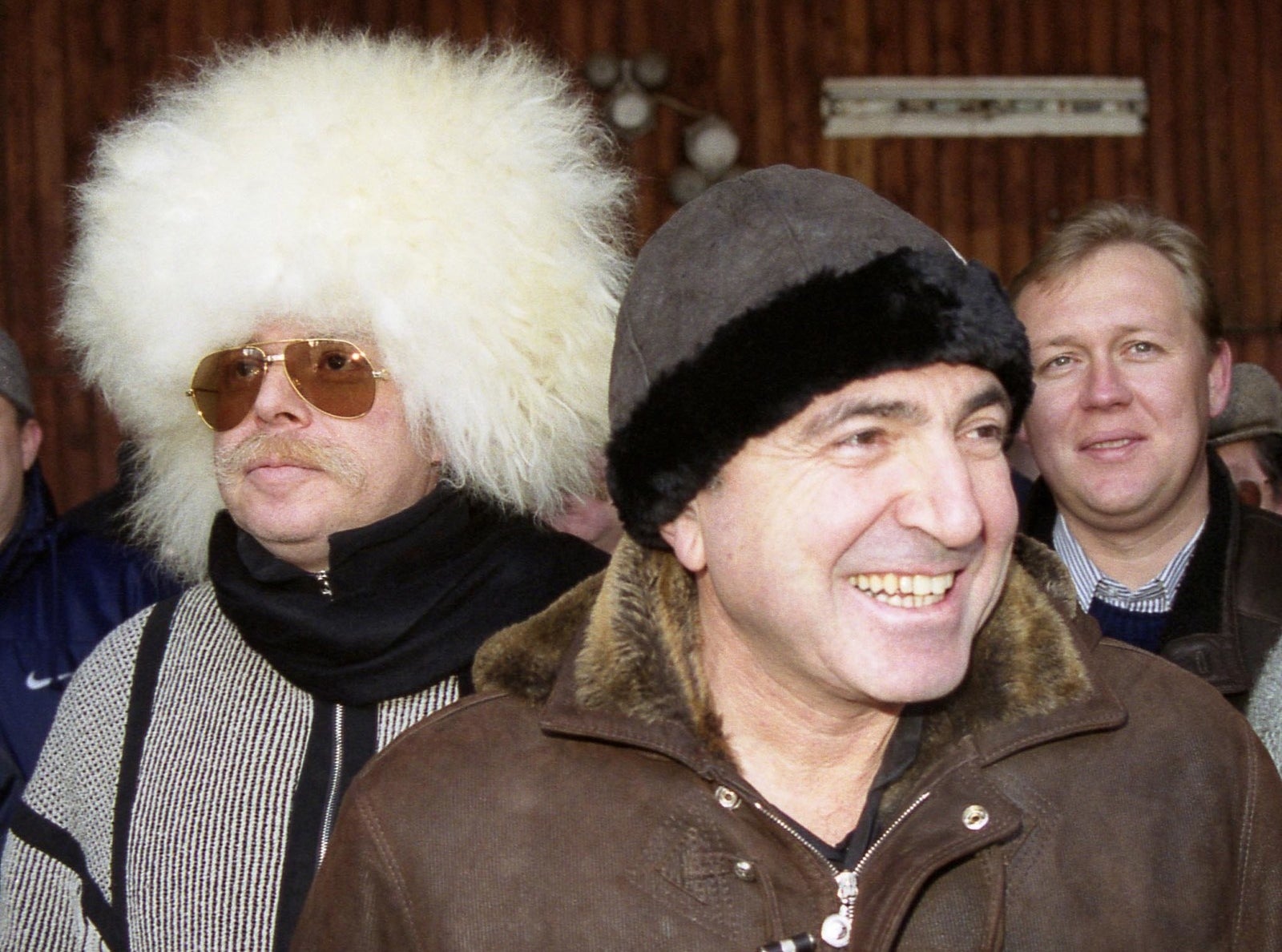
Young was a great raconteur, and he loved to spin the yarn about how Berezovsky had turned up at his mansion out of nowhere that summer day. But a private intelligence report tracking his activities in Russia suggests he had actually met Berezovsky’s people two years earlier, in Moscow in 1999. Prepared for Michelle by the business intelligence and accountancy firm PKF, the report says Young had been visiting the Russian capital regularly on Berezovsky’s behalf since the oligarch first fled in 2000.
The economic security unit of the FSB developed what the intelligence report calls a “long-term interest” in the British businessman and began formal surveillance of him in February 2002. His calls on two Russian SIM cards were said to have been intercepted, and “his movements around Moscow were monitored”. The FSB surveillance team built up a picture of Young as a “high-class fixer” who was “providing highly confidential assistance to oligarchs” and was therefore being “pampered and looked after by his hosts”, the report says. A “typical night out” would include drinks and dinner at the posh Café Pushkin, Vogue Café, or Restaurant Vanille before a visit to Private Club Bordo, a brothel frequented by the city’s political and business elite.
Boris and Badri had amassed their riches in the smash-and-grab era after the fall of Soviet communism, and they faced two big problems as they tried to extract their wealth from Russia: currency controls that limited how many rubles could leave the country and stringent anti-money-laundering regulations that required proof that funds entering Britain were from unquestionable sources.
Young was just the man to help. He had an irrepressible habit of forming dangerous associations and had become a multimillionaire almost overnight in the ’90s after developing a close friendship with the notorious London gang lord Patrick Adams – one of the brothers who control the Adams family organised-crime syndicate. Police sources said that the Adams family are suspected of links to the Russian mafia and that Young is believed to have laundered money for the crime group. Indeed, it was after meeting Adams that Young began closing multimillion-pound deals with suitcases full of cash, according to multiple sources, documents, and photographs recovered from Young’s phone. He had mastered the art of covering up a questionable money trail.
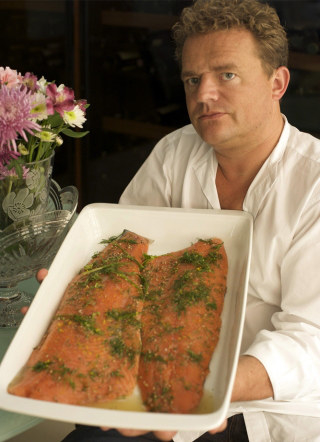
So Young became one of Berezovsky’s most trusted British fixers, helping to launder his money into the UK, using it to buy fabulous cars and luxurious homes on his behalf, and concealing the oligarch’s ownership behind opaque offshore vehicles. “Scot did a lot of global shopping for Boris,” said Brown, the smoked-salmon mogul, who was close to both men. “Boris can’t just walk in the UK and set up bank accounts, it’s not that easy,” he explained, so the Russian would wire “shitloads of money” from his offshore accounts in Cyprus “and Scot would go and buy him his cars and his shit”.
But already there were sobering signs that Young’s new Russian connections placed him in peril. When Berezovsky came to visit him at home, Young asked Michelle to remove their two small daughters from the house for their own safety. Then, she said, she was approached by a man who said he worked for MI6 and who warned her: “These people are very, very dangerous and by getting involved with them you’re risking your life.”
Berezovsky had been granted political asylum in 2003 by the government of Tony Blair because of continual death threats from the Russian security services, and counter-terror officers assigned to monitor his safety were informed that he topped a “hit list” of Kremlin opponents living in Britain. In one early plot, Scotland Yard received intelligence that Russian assassins planned to stab Berezovsky with a poison-tipped fountain pen as he showed up at court to fight attempts to extradite him to Moscow. Two senior Scotland Yard counter-terror officers told BuzzFeed News they regularly had to alert the oligarch to credible plots to kill him on British soil. One officer said he knew of around 15 crisis meetings relating to the oligarch’s safety, three of which concerned “serious assassination plots”. Berezovsky’s notorious partiality to young women made him a sitting duck for honeytraps, he said, while the oligarch's heavy reliance on Viagra exposed a vulnerability to poisoning. A second officer said Berezovsky had to be told to leave the country on at least five occasions because “there were very good reasons to think that he may be assassinated” and “our information was that the risk to him was in the UK”.
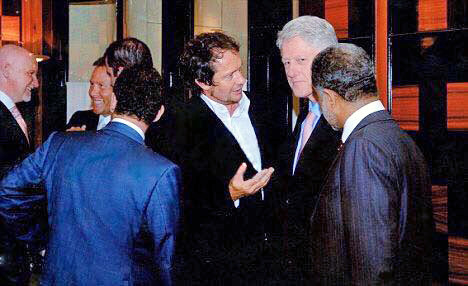
Meanwhile, Young’s own wealth had ballooned suddenly. An asset schedule prepared in 2002 by Coutts – the Queen’s bank – shows that the one-time pub promoter was now worth £279 million. He had suddenly become such a huge player in the British property market that Lord Andrew Hay of the elite real estate broker Knight Frank wrote letters of recommendation describing him as “the most important single private client the firm has within the UK”. Emails reveal he and Berezovsky were invited to a “boys’ dinner” in London with Bill Clinton by the Finnish billionaire and major Tory donor Poju Zabludowicz. He had become friends with the retail billionaire Sir Philip Green, the Ivy group owner Richard Caring, and the reality TV mogul Simon Cowell. Friends say it was his party trick to fly Paris Hilton in for dinner, and he hung out with the pop superstar Pharrell Williams.
Young’s family was now spending more and more time in Miami, where they bought a prestige property on the waterfront of Coconut Grove. It was at this point that he first crossed paths with the salmon magnate Jonathan Brown.
Meeting at a glitzy South Beach steakhouse, the two former working-class lads hit it off immediately – bonding over the discovery that they both loved the scene from True Romance when Dennis Hopper is about to get “whacked” by the mob and uses his last words to insult his assassins. They both relished that moment, Brown said, because “it’s like, even in death, we’re gonna fuck ’em”.
Young soon invited Brown to fly to London on his private jet and had two Rolls-Royce Phantoms waiting on the tarmac. He put Brown up at the five-star Halkin Hotel, and they partied till dawn at Boujis, the favourite nightspot of Princes William and Harry, where, Brown said, Young would blow £50,000 a night on cocaine and magnums of Dom Pérignon that he’d shake up and spray all over the crowd.
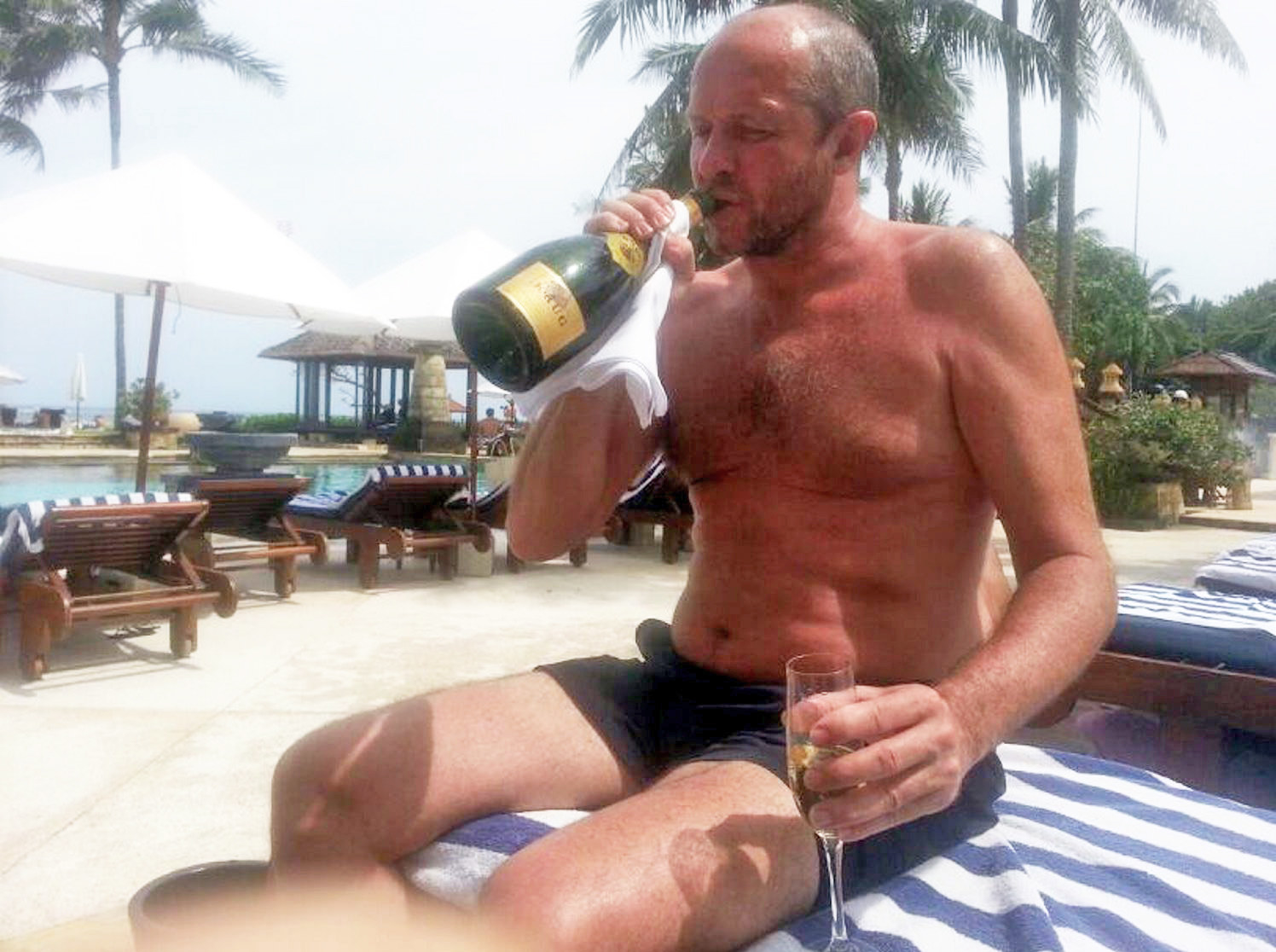
The two grew close enough for Young to bring him into Berezovsky’s inner sanctum – and that, said Brown, was the moment he unknowingly became a “participant of chaos” that would leave him terrified for his life.
Young took Brown to a discreet club in Berkeley Square where Berezovsky was waiting with two “lethal-looking” bodyguards who freaked Brown out by following him every time he went to the bathroom. But the party got on so famously that Young leased himself, Brown, and Berezovsky three grand townhouses neighbouring each other on Eaton Square in Belgravia – the capital’s most exclusive address – complete with gleaming white columns and balconies overlooking private gardens. Berezovsky, Brown said, filled his house with teenage prostitutes he flew in from Latvia, and asked the others to watch over them when he was in Surrey.
The oligarch’s almost childlike reliance on Young fascinated Brown. One day in Miami, he recalled, he answered Young’s phone for him. “My love,” Berezovsky said, without waiting to hear whom he was speaking to. “Get on a plane, I need you in London. I have lost the Phantom of Love.” Mystified, Brown turned to Young to ask: “What the fuck is the Phantom of Love?”
“What the fuck is the Phantom of Love?”
The missing item was a £500,000 vintage Rolls-Royce that Young had bought for Berezovsky via an offshore front company in Gibraltar. The vehicle featured an “audacious rococo interior that is nothing less than magnificently palatial”, according to an auction house listing, with fine upholstery and a ceiling painted with naked cherubs that resembled “the throne room at Versailles”. Berezovsky had given the Phantom to an 18-year-old girlfriend as a present, Brown said, and she had called to say it had “vanished”. “I know someone who’ll know someone who’ll know where it is,” Young said. And, to Brown’s astonishment, he did.
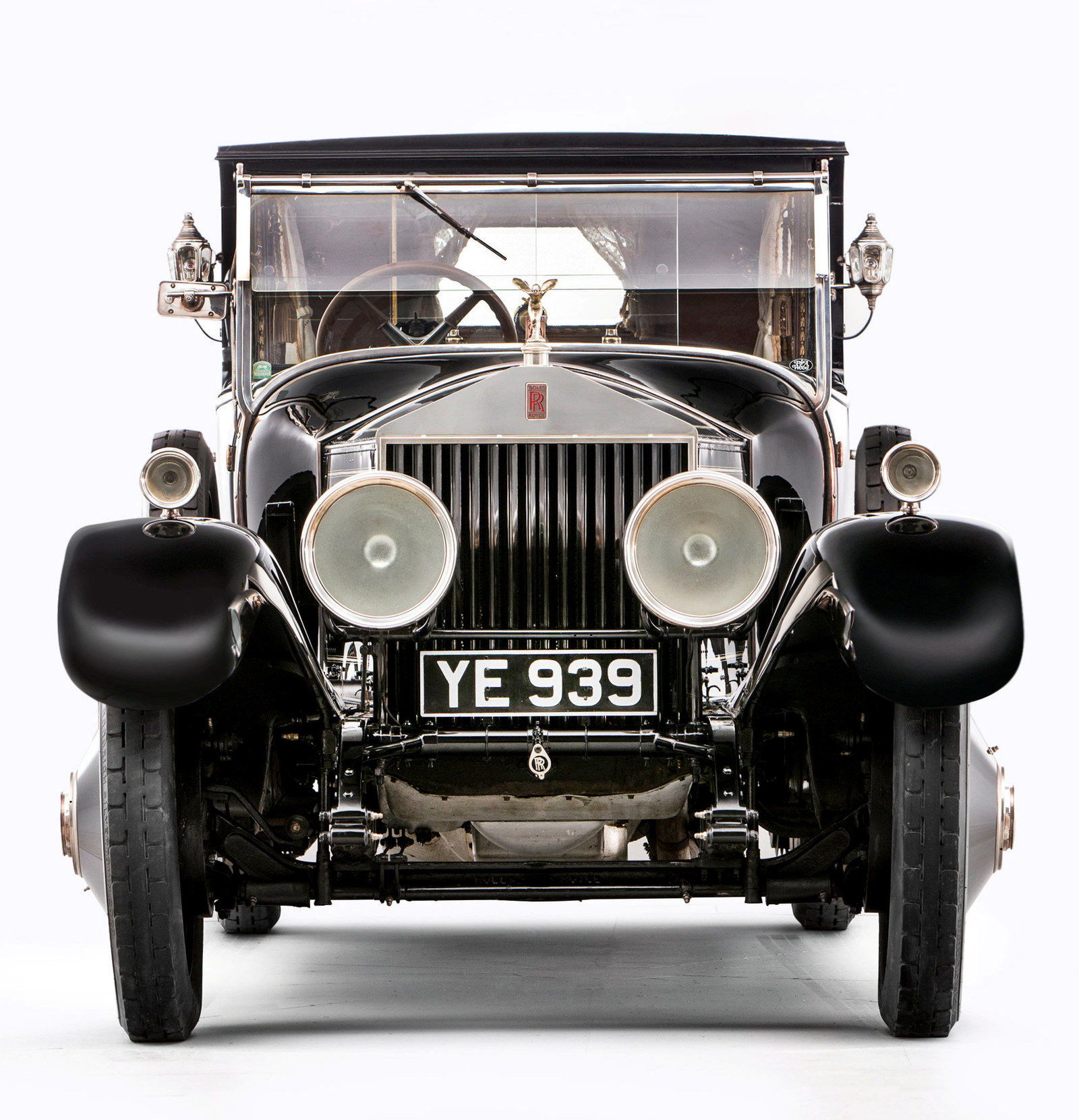
But hovering over the daily drama was a dark threat that only intensified. Even though Berezovsky “knew he was going to get killed”, Brown said, he refused to stop poking the bear, savaging Putin in articles, TV appearances, and speeches. “I said to him, ‘Boris, don’t wind the government up!’’’
Any time Berezovsky launched a new broadside on the Kremlin, a Scotland Yard counter-terror officer who monitored his safety said, a flurry of activity would be picked up by “billions of pounds of GCHQ interception apparatus staring at Russian telecommunications”, suggesting that the threat level had risen. “It was almost as if you got a chill wind from the East,” he said.
By then, Berezovsky was stoking unrest against the Kremlin right in Russia’s back yard. Documents indicate he pumped about $30 million into Ukraine to help fund the Orange Revolution, the uprising that in 2005 toppled the country’s pro-Kremlin government and undermined Putin’s influence. The counter-terror officer said Berezovsky was also meddling in the politics of Georgia and Belarus. And Young was right behind him, the documents show, pushing a massive infrastructure project in Kiev and booking a private jet for meetings in Tbilisi.
For Brown, it was as if Young was so blinded by Berezovsky’s billions that he just couldn’t see the danger. “Me and Scot can do the best we can, we make 10 million, 20 million, 30 million. We don’t make billions, right? It doesn’t work that way,” he said. “The billions come when Boris turns up. But it comes with a cancer. And the cancer kills you.”

It was when driving Brown to the airport one morning that Young first mentioned Project Moscow. He said he’d bought up “the best land” in the Russian capital, Brown recalled, and was planning to build a “spectacular” office complex. The development promised to yield “profits running into hundreds of millions”, and Young was offering his friend the first slice of the pie.
Young’s offer required Brown to keep two big secrets. First, Berezovsky was putting $6 million into the deal. A lawyer’s note confirmed that “SY is fronting for all this” because “Boris can never been seen to invest in Russia openly for political reasons”. And second, Young boasted, he had bought the support of the mayor of Moscow. “Here’s the land, we’ve got the best location in Moscow, we’ve got the mayor paid off, it’s going to be a fantastic deal,” Brown recalled being told.
Mayor Yury Luzhkov was then one of Russia’s leading politicians, a key ally of the Kremlin, and married to one of the country’s richest women with a personal fortune of more than $1 billion. According to a 2010 US diplomatic cable, Luzhkov was also a corrupt power broker “involved with bribes and deals regarding lucrative construction contracts throughout Moscow”.
US analysts had identified “a three-tiered structure in Moscow’s criminal world” with Luzhkov at the top, the FSB at the second level, and ordinary criminals at the bottom. They noted that anyone seeking to do business in Moscow had to pay for what the locals call "krysha" – protection, or, literally, “roof” – from one of these groups. “If people attempt to forgo protection, they will instantly be shut down,” the cable noted. Luzhkov strongly denied any involvement in corruption. In a letter to BuzzFeed News, his lawyers said he had never met Young, had no involvement in Project Moscow, and had not accepted any payment in exchange for protection. Nor, they said, would he have sanctioned any scheme involving Berezovsky.
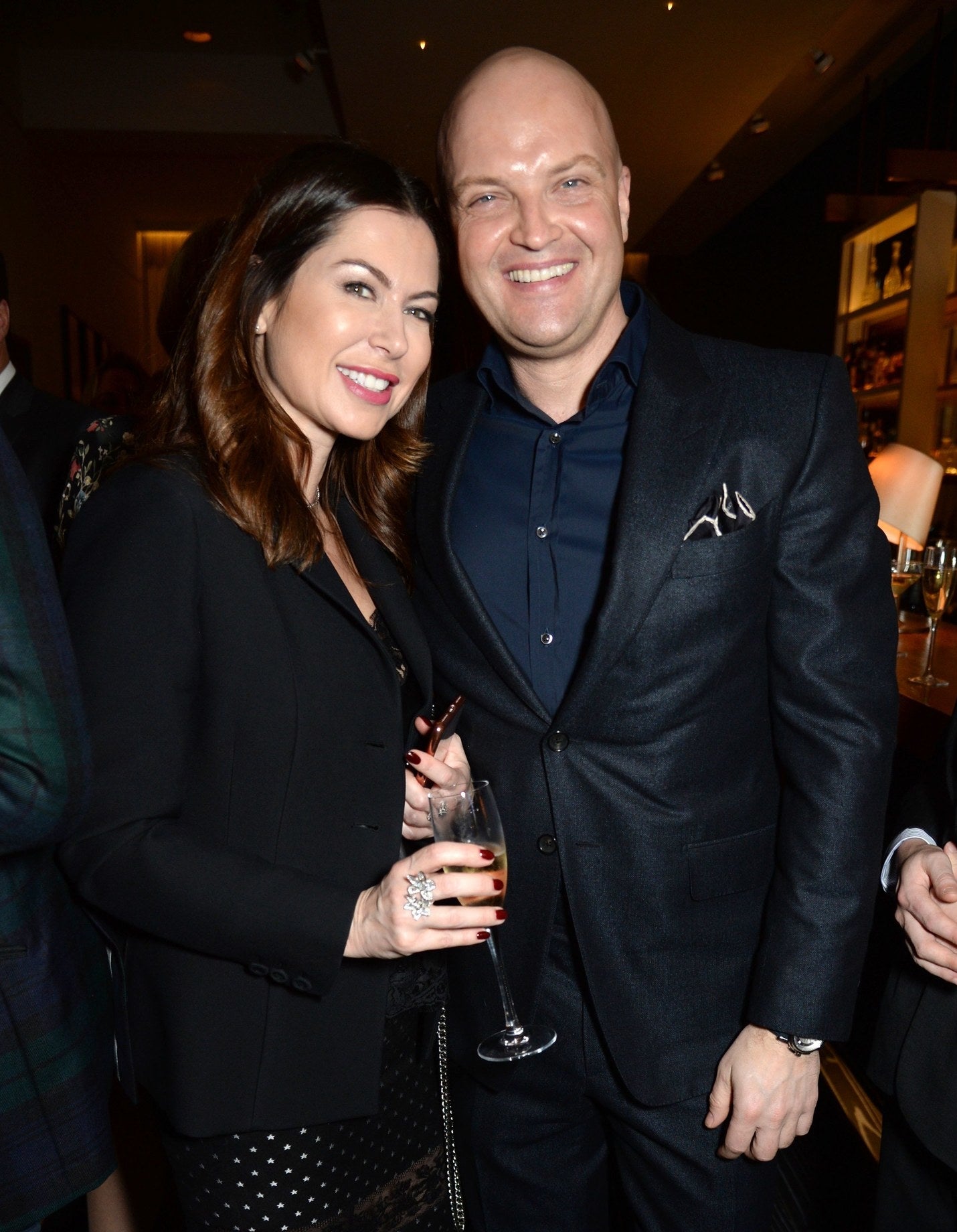
Project Moscow was a joint venture between Young and Ruslan Fomichev, a suave, bullet-headed Russian financier with glacial blue eyes who had formerly worked for Boris and Badri in Moscow and London. Fomichev’s father was a retired KGB general, and Young traded on that lineage, telling investors that the property development would benefit from his partner’s connections to Russia’s military and security establishment. Fomichev said he had never met or had any dealings with Luzhkov and denied maintaining any links to the Russian security services. “I never had any krysha, never made any deals with anybody, never bribed anyone,” he told BuzzFeed News, insisting that “Project Moscow was the cleanest deal you can imagine being done in Russia, ever”. He denied Berezovsky’s involvement in the scheme – then said he was “shocked” when BuzzFeed News showed him documents evidencing the oligarch’s secret investment. “The first time I am hearing about this is now,” he said. “That was not my intention to involve Berezovsky in Project Moscow.”
Any krysha Young thought he had came as cold comfort to his London lawyers, who warned in a due diligence document that “Russia is still a dangerous place where people are kidnapped for ransom, are murdered or simply disappear.”
Young’s job was to raise $26.5 million by January 2006, and he set up a network of offshore vehicles to channel investments into the project. Brown threw in $5 million. He was followed by three more members from Young’s inner circle: the Finnish magnate Zabludowicz, a Monaco-based film mogul called Stephen Kay, and a secondary lender in London called Harvey Lawrence. Lawrence and Zabludowicz did not respond to repeated requests for comment, but Kay said he and the other investors had no knowledge of any illicit payments to the mayor of Moscow and were unaware of Berezovsky’s secret stake in the scheme. “Do you seriously think anyone would put money into the deal if they thought Berezovsky was involved?" the film producer told BuzzFeed News. "The man was banned from Russia. He was a fugitive."
“Do you seriously think anyone would put money into the deal if they thought Berezovsky was involved? The man was banned from Russia”
Young came up with a cunning ruse to channel Berezovsky’s $6 million into the scheme, documents reveal. The deal, which was done in the name of Berezovsky’s daughter Ekaterina, involved Berezovsky “selling” a luxury townhouse in London’s upmarket Mayfair to Young, but without any actual money changing hands. Instead, Young committed to pay for the house from the profits of Project Moscow. To raise Berezovsky’s capital for the scheme, Young took out a mortgage on the property, ensuring that the original source of the funds was obscured. Ekaterina Berezovsky declined to comment when contacted by BuzzFeed News, but sources close to her said she had no idea her name had been used to funnel money into the project, and would not have expected her father to invest in Russia through any route “because it would have put him and any fellow investors in danger”.
By mid-2005, Young just needed to stump up another $5 million in loans to complete his side of the bargain. Documents show he spent the rest of that year scouting for other glittering deals in Moscow and St Petersburg, and a £15 million luxury apartment in London’s Knightsbridge.
Got a tip? You can email tips@buzzfeed.com.
To learn how to reach us securely, go to tips.buzzfeed.com.
But as the year turned, disaster struck. Just before Christmas 2005, Young missed a deadline for the remaining funds. The usually cool and collected Fomichev sent him a furious email. “Today on thursday 22 DECEMBER!! we received no moneys from you,” he wrote. “We have been asking for 1.5 mil USD loan since September! I do not feel that i have to be responsible towards you when you are not doing the same to me.”
Berezovsky chose this delicate time to go on Russian radio and call for an armed revolution against Putin. The Russian prosecutor general charged him in absentia for plotting the violent overthrow of the government. There could hardly have been a worse time to try to secrete Berezovsky’s money into a conspicuous property development in the Russian capital.
When Young missed another payment deadline at the start of February, Fomichev was at a loss for words. “What the ........!!!!!!” he wrote. Young responded: “I am juggling. You will have it before 12 tomorrow”. Young’s final payment of $5 million was vital for keeping the city government onside. “I am leaving tom to moscow and need to meet with you to discuss our position with the moscow mayor,” Fomichev emailed Young days later. The financier told BuzzFeed News that he had never discussed the project with the mayor and did not recall this email, but said it had likely been sent “to pressure Scot” into paying the money.
But the funds never materialised, and in March, Fomichev finally pulled the plug on the scheme. Russian prosecutors – who had just charged Berezovsky with treason – announced the Project Moscow investors were under investigation for “economic crimes”. Though no charges would ever be brought, the Moscow police started digging into the finances behind the development – and suddenly Berezovsky’s cover was in danger of being blown.

The first Brown heard of the trouble was when news reached him that Young had lost all his money, attempted suicide, and been held in the Priory mental health hospital. Brown didn’t believe a word of it. “He threw this fucking Priory story, and I’m like, ‘Scot, it’s me, you’re not in the fucking Priory,’” he said. “I mean, ‘Let’s go to Boujis and do some blow,’ you know what I mean?” He phoned Young and told him to get on the first plane to Miami. When Young arrived, Brown said, it was immediately obvious that the suicide attempt had been a sham concocted by Young to buy himself time with his angry creditors – but it was also clear that trouble really was brewing in London and Moscow. Young insisted that he had lost everything and was now tens of millions of pounds in debt, but he wouldn’t say how. It was as if, Brown said, “the sky suddenly fell in for Scot”.
Young’s psychiatric records show that he had not in fact been committed, though he had visited the Priory voluntarily. He had taken too many tranquillisers and had superficially cut and bandaged his wrists – something he told his doctors he did because he “wanted people to think he was suicidal”. After heading to Miami, he fired out a series of incoherent emails to business associates to whom he now owed millions, telling them he was “heavily sedated”, rambling about suicide, and promising to resolve the crisis when he recovered.
Alarmed by the calamity that had suddenly befallen Project Moscow, Brown turned to Stephen Jones, his offshore finance lawyer, who devised a recovery plan under which a Russian company called Guta Group bought out the investors Young had recruited. By the end of 2006, they had got most of their money back.
But everyone remained mystified about what had caused Young’s finances to implode so suddenly. Some friends speculated that his business empire had been a house of cards all along, built by borrowing on the back of assets he had never really owned. Others heard rumours that he had fallen foul of the Russian mafia.
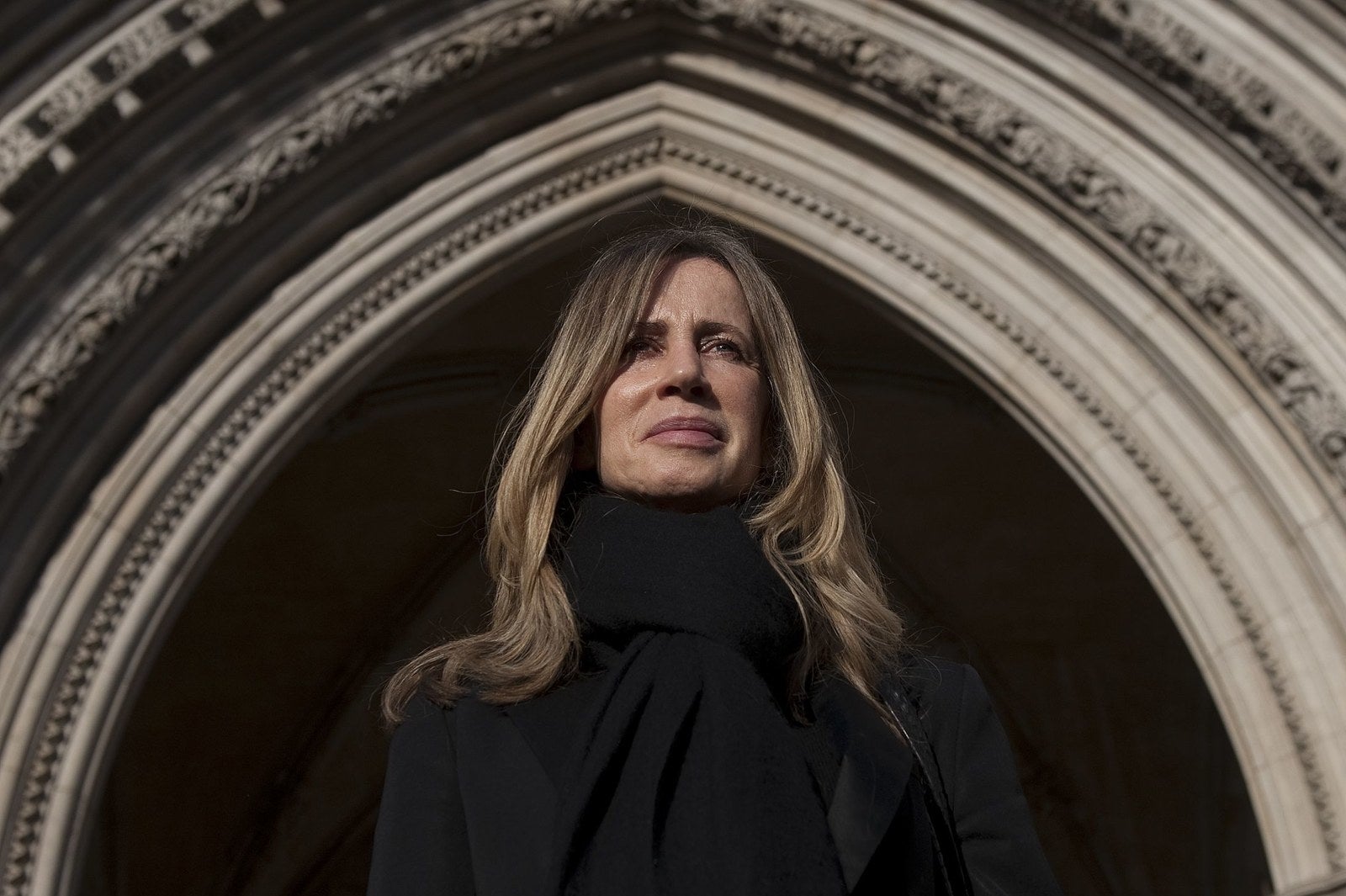
His wife Michelle had a different theory: She claimed that he had hidden all his wealth offshore. After all, it was only a few months after the money vanished that Young announced he was leaving her. She put together a team of lawyers, private detectives, and forensic accountants to follow the money. So began the longest-running High Court divorce battle in British legal history – conducted in a continual blaze of media attention. And the secrets of Project Moscow were at the heart of the case.
Michelle quickly obtained a worldwide freezing order on all Young’s assets, including the Buckingham Suite property that had been used to funnel Berezovsky’s funds into the scheme. Young would go to every length imaginable to keep the secrets of his business dealings. He flouted repeated court orders to disclose evidence explaining the disappearance of his fortune, and he destroyed hundreds of emails he had exchanged with Berezovsky, according to a computer forensics expert who examined his hard drive. He even spent three months in prison for contempt of court rather reveal the truth. Meanwhile, his mansions in London, Oxford, and Miami were repossessed or sold to pay his debts, and his collections of classic cars, watches, and antique furniture were seized by his creditors. His daughters, Sasha and Scarlet, would have to be pulled out of private school after Young was officially made bankrupt by HMRC in 2010. And yet, all the while, Young himself maintained a lifestyle beyond the wildest dreams of the average citizen – dining in fine restaurants, living in penthouse apartments, dressing in designer clothes, and paying in rolls of £50 notes.
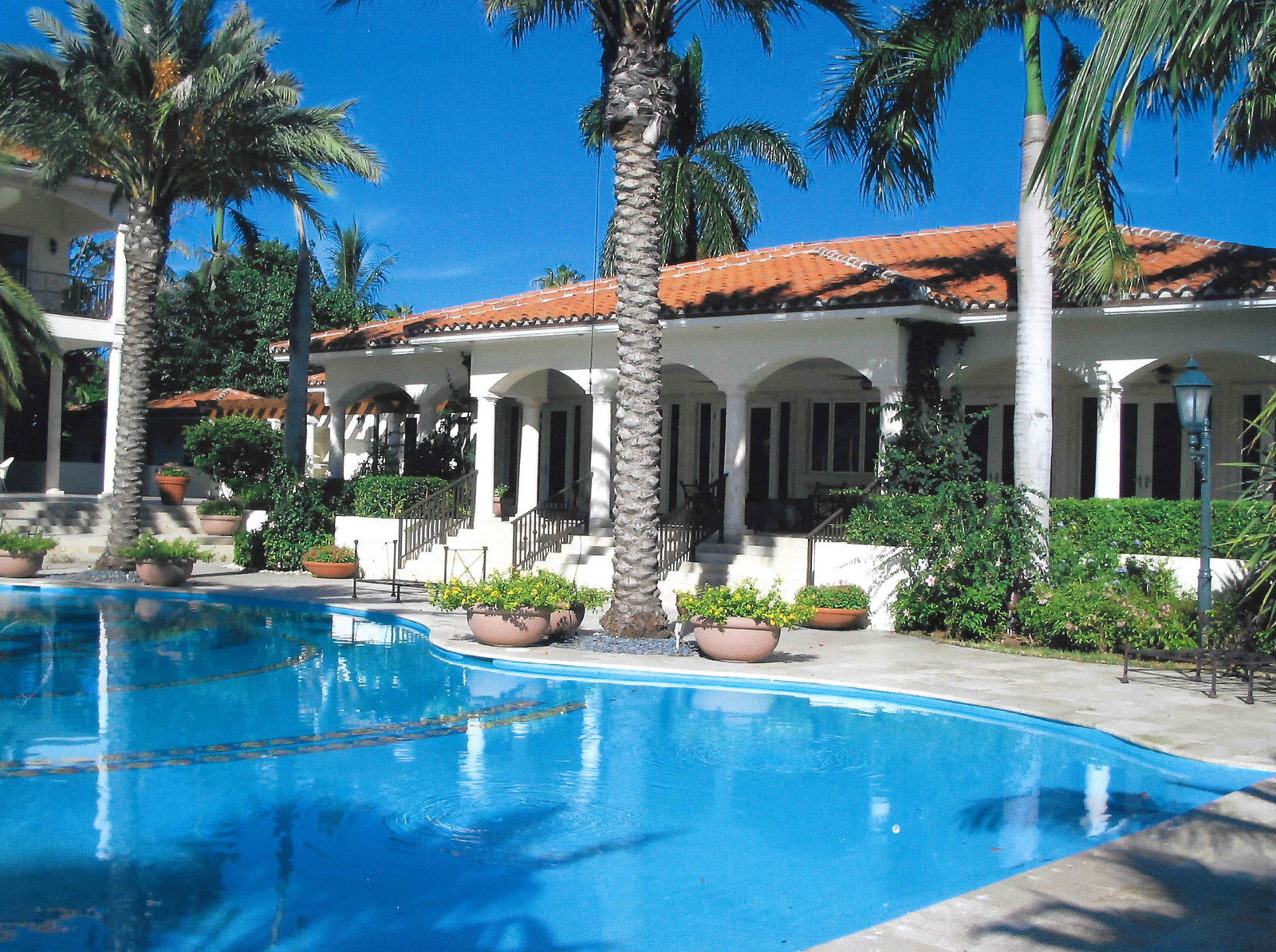
Brown, who remained part of the oligarchs’ inner sanctum, was left wondering whether Young’s sudden financial collapse was linked to economic difficulties Berezovsky was facing. In 2006, the same year Project Moscow imploded, Patarkatsishvili had announced that he wanted a financial “divorce” from his long-time partner, whose increasingly savage attacks on the Kremlin were getting in the way of business. Then Berezovsky fell out bitterly with Fomichev over disputed interest payments relating to a $50 million loan he had made to the financier years before. Berezovsky launched a series of lawsuits against former associates, including Fomichev, that would ultimately ruin him financially. “I think Scot’s demise could really have been the fact that Boris was running out of money,” Brown said. “Scot was living the big life when Boris was living the big life.”
How Young’s hundreds of millions of pounds had disappeared so suddenly, Brown said he will never fully understand. But there are two things of which he is absolutely certain: “Money went missing, and then people started fucking dying.”

One of the first to die was Stephen Curtis. The strapping, round-cheeked British solicitor had been enlisted before the inception of Project Moscow to route billions of pounds from Russia to Britain for Boris and Badri – without getting it snarled up in UK anti-money-laundering checks. He had succeeded, siphoning the money into a trust called the New World Value Fund, and earning himself commissions of $18 million with which he bought a huge gothic castle on an island off Dorset’s Jurassic Coast. Then, shortly after a scheme to move $1.3 billion was completed in 2003, another British lawyer named Stephen Moss, who had worked alongside Curtis on the transaction, died suddenly of a heart attack at age 46. And, at almost exactly the same time, Curtis himself started receiving death threats. “Curtis, where are you? We are here. We are behind you. We follow you,” said a man with a thick Russian accent in one of the messages.
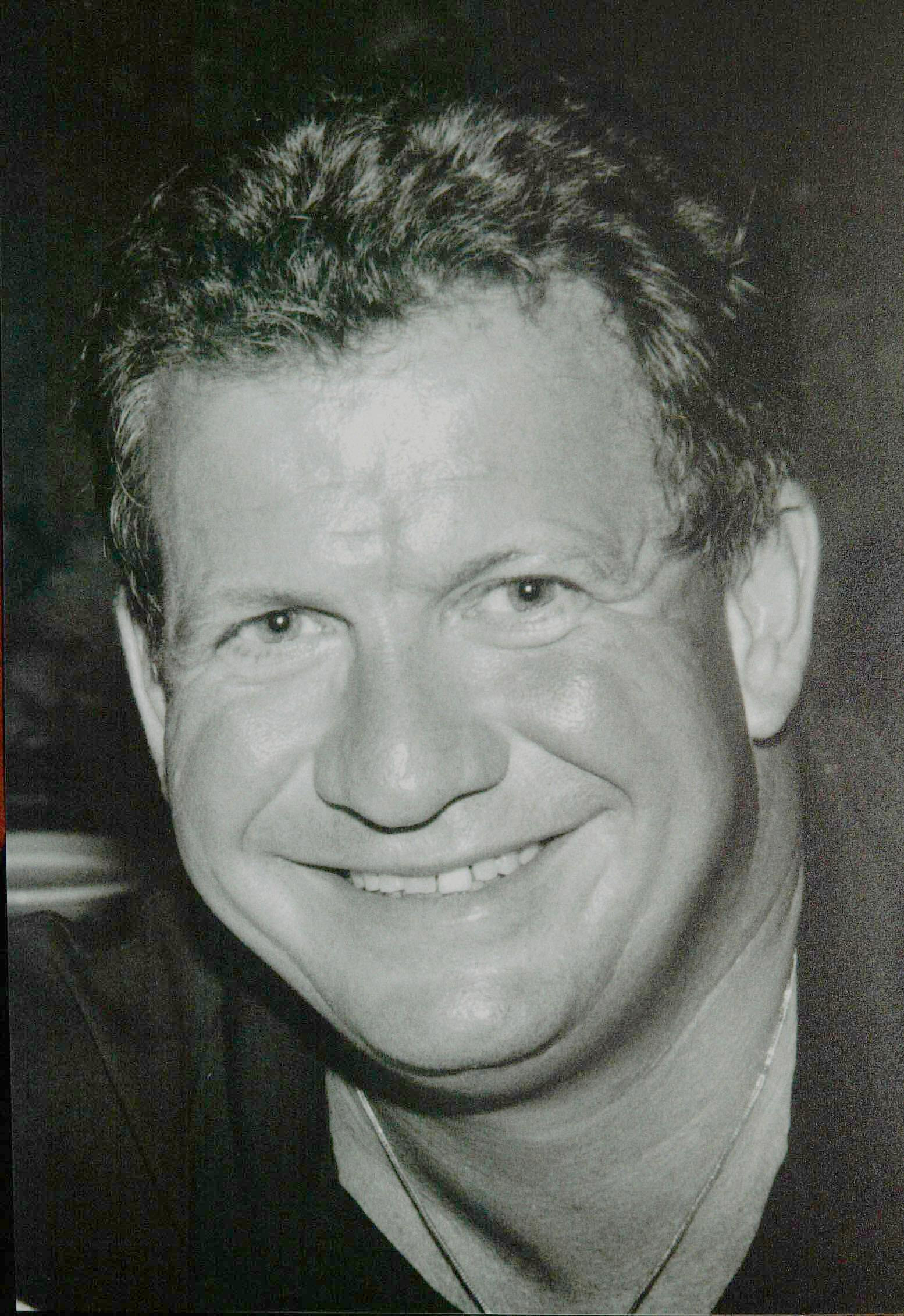
The lawyer hired a team of bodyguards, and at the end of February he told his uncle: “If anything happens to me in the next few weeks, it will not be an accident.” The following week, on 3 March 2004, his private helicopter nose-dived into a field on the approach to Bournemouth airport, killing him and the pilot in a ball of flames. His inquest, a judicial inquiry to determine the cause of death, ruled the crash was an accident – the helicopter went down in poor weather – though the coroner acknowledged that the case had “all the ingredients for an espionage thriller”.
Though the deaths of Curtis and Moss were both treated publicly as non-suspicious, and Moss’s wife said she believed he had died of natural causes, BuzzFeed News can now reveal that MI6 requested information from US intelligence relating to suspicions that both lawyers had been assassinated. Such requests are sent through intelligence-cleared officials at the US embassy in London in the form of telex cables, and the response comes via the same route. Four sources confirmed that US spy agencies have files on both men, stored in classified databases used by the country’s intelligence agencies, containing information linking their deaths to Russia. In examining suspected state assassinations, “we look for authorization at the highest level of government," a high-ranking US intelligence source told BuzzFeed News. “The evidentiary standard is very high and often never meets that level,” he said, but the intelligence suggesting “Russian involvement” in these deaths was considered “strong” – particularly in relation to Curtis.
In the inner circle of the oligarchs, Curtis’s death was a chilling moment. Emails seen by BuzzFeed News reveal that Young hastily cancelled an order for an A109E Power helicopter, the exact model in which Curtis had perished. But Young’s financial moves were decidedly unsentimental. Handwritten notes recovered from Young’s possessions show that he later helped the oligarchs plot to cut Curtis’s family out of his share of a fund established with the proceeds of the payment he had funnelled onshore for them. Curtis's widow did not respond to requests for comment.
Curtis’s death hadn’t been enough to scare Young off working with Berezovsky. But after Project Moscow collapsed and his millions vanished, Young was terrified – repeatedly telling friends, the police, doctors, and his teenage daughters that his life was under threat. Then, just a few months after the deal broke down, in November 2006, the Kremlin struck right at the heart of Berezovsky’s circle.
The Russian secret service defector Alexander Litvinenko, who had fled to Britain under Boris and Badri’s protection, had been poisoned in central London. A public inquiry found that his killers were two FSB assassins, who slipped radioactive polonium 210 into his tea at the Millennium Hotel. The rare isotope would have killed Litvinenko without leaving a trace were it not for a team of British scientists who identified its unusual alpha rays and, in so doing, uncovered the glaring radioactive trail the two assassins had left all over London. Britain could not ignore such a blatant act of provocation, and authorities charged the two assassins with murder in absentia. Though Russia refused to extradite them and they have denied any involvement in the killing, the public inquiry found last year that the two men had been sent by the FSB to murder Litvinenko and that the operation had “probably” been approved by Putin.
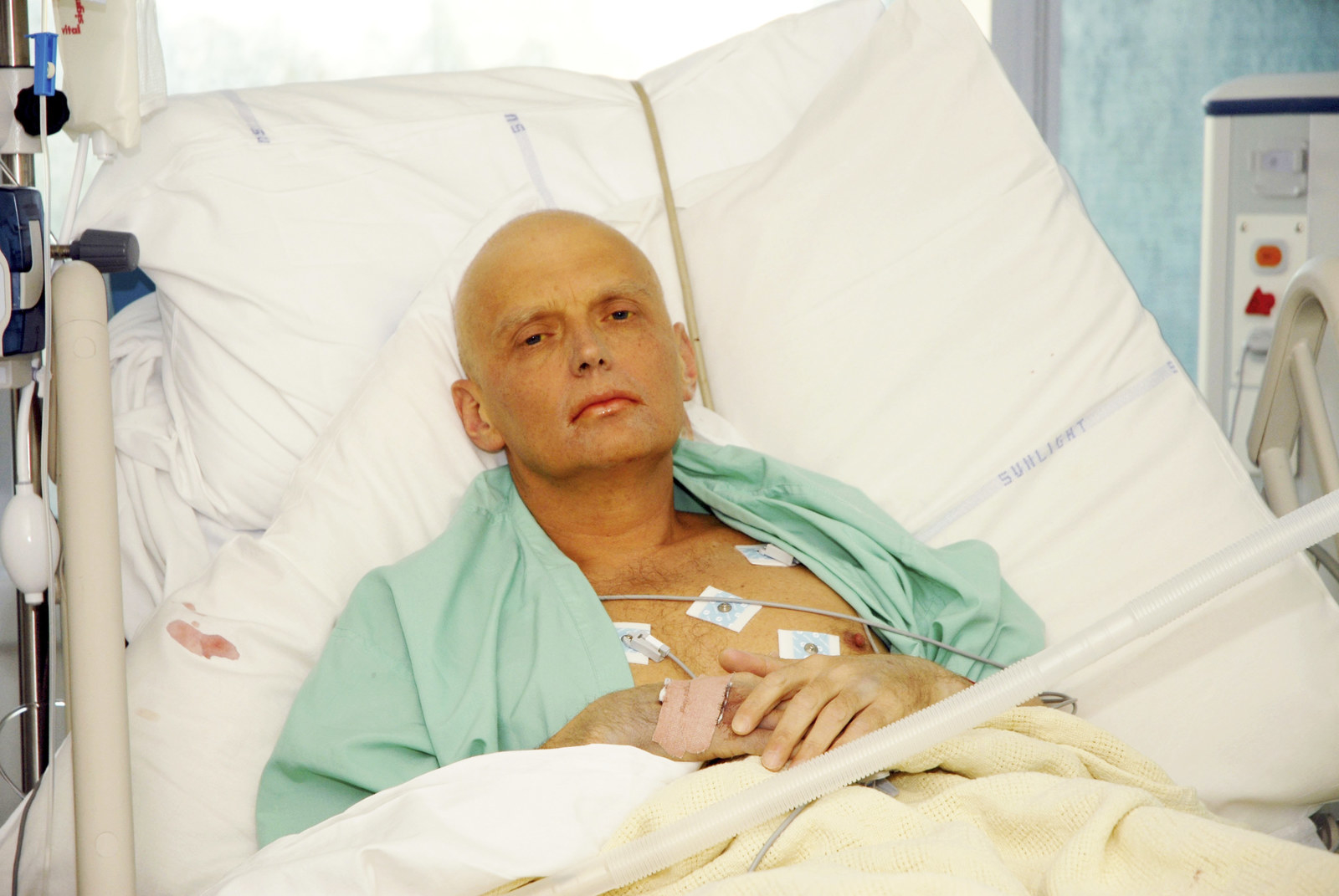
Britain’s reaction to the murder triggered an all-out diplomatic crisis with Russia, in which both sides expelled diplomats and intelligence-sharing ground to a halt for a decade. After that, said Hall, the CIA’s former head of Russia operations, British authorities appeared to start looking the other way when the Russians and their moneymen died on British soil, making it possible for Putin’s assassins “to kill regularly, without having to worry about it too much”.
Young was shaken by Litvinenko’s death, Brown said. What was all the more chilling was that it wasn’t just Litvinenko who was a close member of the oligarchs’ inner sanctum – one of his assassins was too. Andrey Lugovoy was a former head of security in Moscow for one of Boris and Badri’s companies, and he had infiltrated their network in Britain. He succeeded, developing a business partnership with Litvinenko as freelance private investigators. This would not be Young’s last brush with Lugovoy.
A few weeks after Litvinenko died, another prominent Russian expat in Berezovsky’s circle dropped dead. Yuri Golubev was a cofounder of the oil giant Yukos, whose owner, Mikhail Khodorkovsky, had been arrested on politically motivated charges and sent to a Siberian prison after making an enemy of Putin. Khodorkovsky used the same British lawyer as Boris and Badri, Stephen Curtis, who had worked with Golubev to fend off the Kremlin’s attempts to demolish Yukos and strip its assets before dying in a helicopter crash. Then, on 7 January 2007, Golubev was found dead in an armchair at his London flat, shortly after flying in from Moscow. Scotland Yard quickly announced that the death was not suspicious. Bizarrely, however, Russia’s prosecutor general Yuri Chaika announced that there were “all grounds to suppose” Golubev had been killed. US intelligence sources said such pronouncements were often designed as a warning to other Russian exiles that crossing the Kremlin could cost them their lives.
That summer, Scotland Yard received intelligence that Berezovsky was the target of an imminent Russian assassination plot. The would-be killer was a Chechen with FSB links by the name of Movladi Atlangeriev, who landed at Heathrow Airport in June, bought a firearm, and asked to meet Berezovsky. “All the intelligence given to me suggested that this man was here to assassinate Boris,” his Special Branch protection officer told BuzzFeed News. Berezovsky was airlifted to Israel, and a surveillance team arrested Atlangeriev, who had made his way to the oligarch’s office lobby with a gun. But rather than putting him on trial, the British government merely revoked his visa and bundled him on a plane back to Russia, refusing to comment publicly on the operation. Berezovsky, though, was typically irrepressible, telling reporters that he had survived an assassination attempt for which he held Putin personally responsible.
That December, Patarkatsishvili, the other half of the “Boris and Badri” partnership, notified Scotland Yard of an assassination plot against him related to his political activities in his native Georgia. “I have 120 bodyguards,” he told the Daily Telegraph, “but I know that's not enough. I don’t feel safe anywhere.”
Two months later he was dead.
The web of death
Click on the images to learn more about each death
Patarkatsishvili had returned from meetings in London on 12 February 2008, then eaten dinner with his family before complaining that he felt unwell and retiring to lie down. Relatives found him dead in the master bedroom. Surrey police initially said they were treating the death as suspicious but quickly reversed that position, announcing that an autopsy had shown “no indication” that the death of the rotund 52-year-old was attributable to anything other than natural causes.
Lord Tim Bell, a former adviser to Margaret Thatcher, was Patarkatsishvili’s long-time friend and had seen him that last afternoon. The oligarch had seemed “absolutely fine” when they parted ways, Bell said, “and by the time I got home he had died”. He said he heard of his friend’s death from Berezovsky, who phoned him and announced sorrowfully: “They’ve done Badri.” Bell agreed with Berezovsky that their friend had been murdered. “They have all sorts of stuff that can kill you without leaving a trace,” he said. “The British government backs off when there’s a suspicious death linked to the Russians because they don’t want to upset the Russians and they don’t want to have to find them guilty of something that might cause an international incident.”
Patarkatsishvili, like Golubev, was said to have died naturally of a heart attack – a conclusion Surrey police said they had reached after “very extensive toxicological testing”, which was supported by the coroner's verdict. But – as with Moss and Curtis – British spies secretly asked for information from their US counterparts linking the two deaths to Russia, said four American officials, who added that both men are named in US intelligence files containing information about suspected assassinations in Britain. The suspicions in relation to Patarkatsishvili’s death were particularly strong, two high-ranking US intelligence sources told BuzzFeed News.
A former senior MI6 officer said that, after Litvinenko’s death, the intelligence services knew Russia had a sophisticated array of chemical biological agents at its disposal that were designed to kill undetectably – often by triggering cardiac arrest. “In cases where the postmortem conclusions are not altogether clear or there’s nothing obviously visible, I wouldn’t take a lot of comfort in that,” the former spy said. “They have done quite a lot of work with agents that are hard to identify and discover.”
After Patarkatsishvili’s death, Brown said he became increasingly worried for Berezovsky. “What a lonely life,” he said. “You can’t really go anywhere, people have been trying to kill you. Your friends have died of radiation positioning. You haven’t got long left, really. I mean, he knew it was coming.”
“He disclosed to officers that he believed he was going to be assassinated by gangsters and the Russian mafia”
Meanwhile, Brown said, Young had become a haunted figure – drinking heavily, doing far too much cocaine, and getting himself mixed up with “dodgy people”. In August 2009, he called the police at 3am and “disclosed to officers that he believed he was going to be assassinated by gangsters and the Russian Mafia”, a record of the police visit states. He hadn’t slept in three days and “had not eaten or had anything to drink all day except for a scotch egg” because “he believed he was going to be poisoned”. Young asked for “armed protection” and “requested that he had MI5 and MI6 informed”, the record shows. Instead, officers referred him for psychiatric tests, noting that “there was no information to corroborate his allegations of his life being in danger”.
After an altercation later that evening, police arrested Young. At the police station, doctors concluded he was “paranoid, with a manic flavour” and had a “complex delusional belief system”. They committed him under the Mental Health Act and moved him to St Charles Hospital.
There, doctors noted, Young appeared “sweaty, suspicious and restless” – attempting at times to kiss other patients and expose himself. The one-time multimillionaire accused nurses of being “in the league of the KGB” and tried to kick down the ward doors to escape.
Young had been due to attend a divorce hearing with Michelle on 7 September, when he would face jail if he failed to disclose documentary evidence of his losses. Doctors at St Charles Hospital wrote to the judge that he was mentally unfit to comply with the court order. Michelle was furious, asking that Young be jailed for his recalcitrance. But the judge delayed the hearing.
The next day, doctors noted a “significant improvement”: Young was exhibiting “no psychotic features”, though he still maintained – calmly, now – that his fears had been justified. His daughter Sasha recalled that while her father was in the hospital, he called her and warned that “he was being followed by someone”, that “something was going to happen”, and “that we had to be in a safe place”. This was the first of three times Young’s fears for his own safety led to his committal. Sasha said he told her these mental health admissions were his way of fleeing to safety when he found himself in imminent danger – something his medical notes show he also said to doctors.
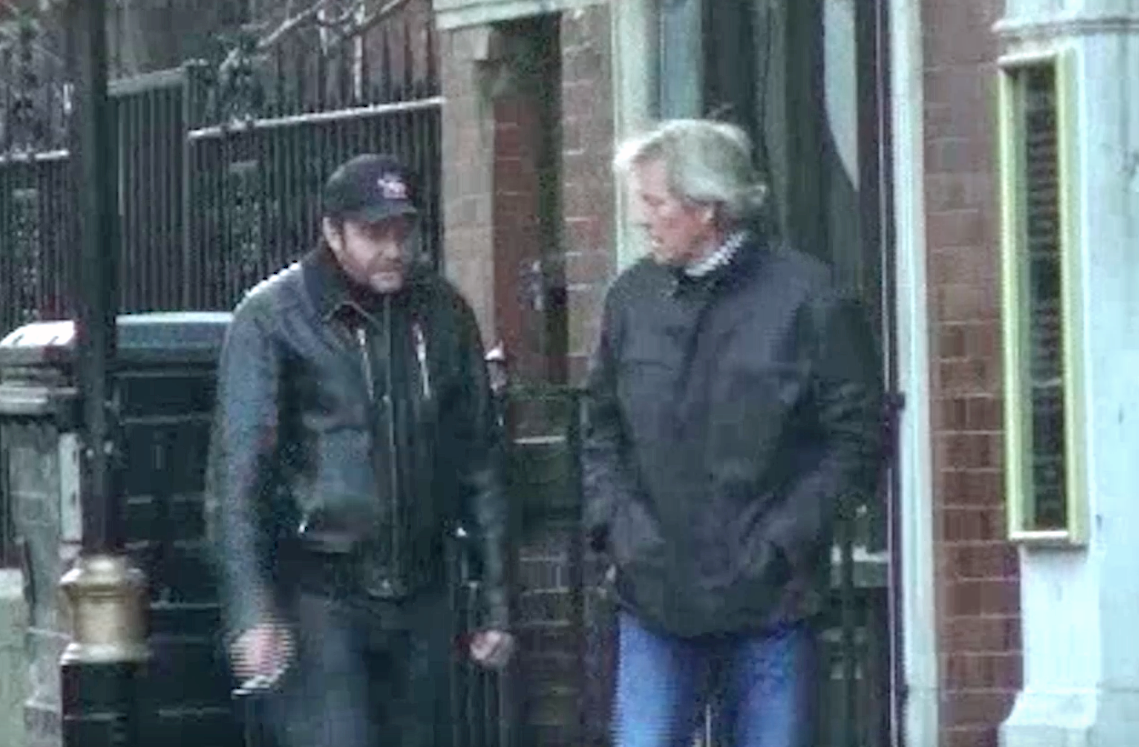
With no help from the police, two sources close to Young said, he sought the protection of the Adams family – Britain’s most notorious organised crime gang. By now he had been friends with Patrick Adams for 20 years. Surveillance footage gathered by private detectives working for Michelle, seen by BuzzFeed News, captured Young meeting the crime boss. The pair met for a long drink at a pub called the Barley Mow in Mayfair, and the private eyes noted that he had “thanked” his grey-haired, leather-jacketed companion before they parted ways outside. Adams is now serving nine years in prison for shooting a suspected informant who only narrowly survived, and his lawyers did not respond to requests for comment. After turning to the crime boss for help, Young told people close to him that “nothing would happen” because he was being “looked after”.
But then two of his friends died in rapid succession, and his fears flared back up. Paul Castle and Robbie Curtis were an inseparable pair of roguish, high-rolling property dealers who had dined with Young and Berezovsky often at Cipriani, his favourite Italian restaurant in London. Castle played polo with Prince Charles and was known by friends for “spending more money than God” on champagne, while Curtis had made a fortune on luxury rentals in the early 2000s and liked to boast that he had once dated the model Caprice. Like Young, the two tycoons had experienced a dramatic financial collapse, and friends told BuzzFeed News both had run into trouble doing risky deals with gangsters linked to the Russian mafia.
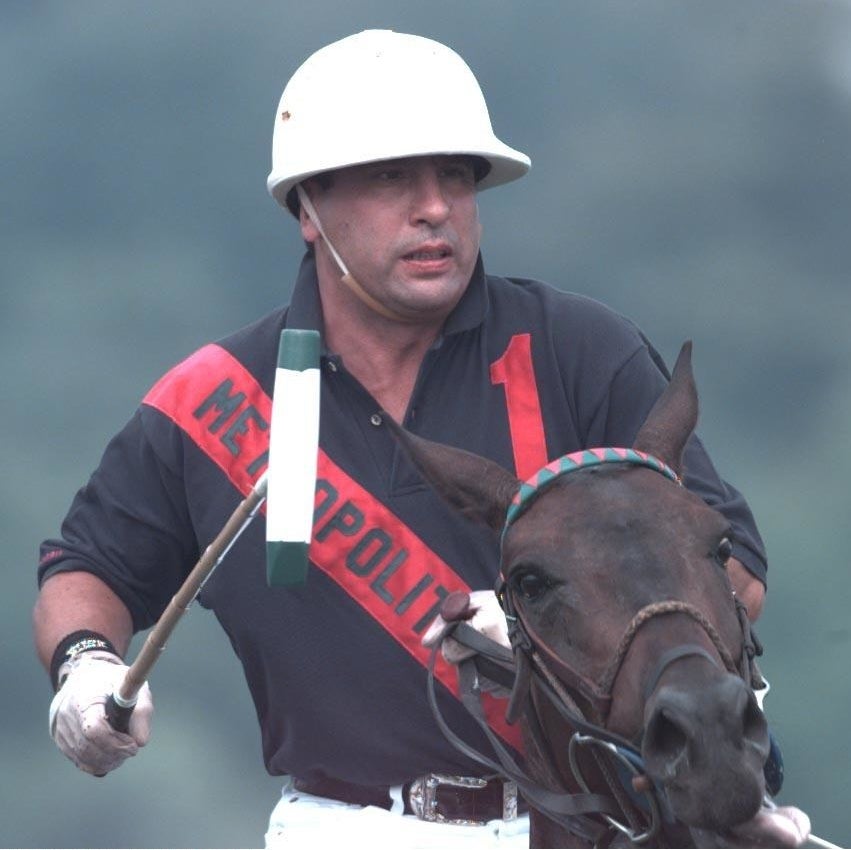
Castle was the first to go. The 54-year-old had lost all his money in the financial crisis, his inquest would hear. One morning, in November 2010, he reportedly took tea at the Grosvenor Hotel, as was his habit, before turning up at his Mayfair offices in apparently good spirits. But then, friends said, enforcers for a “dangerous” Russian-linked crime gang burst in, threatened him, and forced him to hand over a valuable collection of luxury watches. Immediately afterwards, Castle walked out of his office and into Bond Street tube station, where he was captured on CCTV diving with his arms outstretched into the path of an oncoming train. After his death, several friends briefed the press anonymously that he had been driven over the edge by “very, very nasty people” connected to the Russian and Turkish mafia who had threatened to kill him slowly and painfully if he did not end his own life. The coroner deemed his death a suicide.
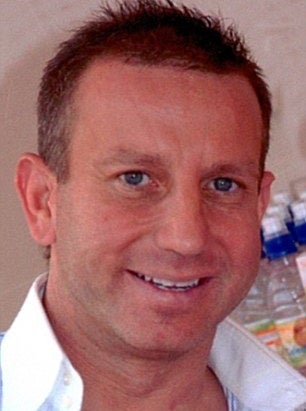
Curtis was devastated by Castle’s death – and scared out of his wits. Friends said that he, too, had got into trouble with the same Russian-linked organised crime gang that Castle was said to have crossed. Two years after his friend’s suicide, in December 2012, at Kingsbury station, Curtis also stepped out in front of a train. Sources close to Young, who asked to remain anonymous for fear of reprisals, said it’s a “well-known fact” that Curtis was murdered. A couple of years before, they said, criminals had thrown him out of a window, and just before his death he, like Young, had sought protection from a London-based crime group. “I need to make sure nothing happens to me,” he is said to have told the gangsters, who replied: “Sorry, but it’s too late. A hit has already been taken out on you.”
Two years later, another member of the Cipriani dining club – the British entrepreneur and former Tears for Fears manager Johnny Elichaoff – would throw himself to his death. Elichaoff was seen rolling himself off the roof of a London shopping centre in 2014 after losing all his money in a catastrophic oil deal.
The police treated all three cases as straightforward suicides and did nothing to investigate evidence of mafia intimidation. But British intelligence agencies had suspicions that the deaths could be linked to Russia and, American officials said, secretly asked the US for information. Castle, Curtis, and Elichaoff are named in US intelligence files documenting suspected assassinations in Britain, and American intelligence sources told BuzzFeed News that such cases could be evidence of a “suicide cluster” engineered through manipulation and intimidation tactics. As one high-ranking US intelligence official put it: “Could Russia be driving these people to suicide?”
“Could Russia be driving these people to suicide?”
Four former senior British detectives told BuzzFeed News that there had been an explosion of Russian mafia activity in London since 2000, and that the country’s organised crime groups were known for their “extreme violence” and appetite for murder. One detective said the British police were woefully ill-equipped to tackle the rise of the Russian mafia and had been looking the other way for years. “The police have no real means to get to these people. You’ve got the language barrier; on top of that they’re very hard to infiltrate,” he said. “The Russians have put them in a corner.”
Young was by this point so rattled that he refused to discuss Curtis’s death on the phone, friends said, because he believed his calls were being monitored. And in 2012, at least, he was being watched. For several months at the start of the year, his wife Michelle, determined to find his assets, deployed a team of surveillance operatives to tail him on foot and in vans, tracking his every move.
Her spies caught him on film doing deals in an array of exclusive West End bars and restaurants, visiting London’s finest five-star hotels, and partying at Boujis with his new girlfriend, the model and reality TV star Noelle Reno. One February day, a private detective investigating Young told BuzzFeed News, the surveillance team followed him to a meeting at the five-star Dorchester Hotel, a favourite haunt. Young went to an upstairs room and came down later, shaking and looking deathly pale. He high-tailed it back to his flat, only to be photographed re-emerging with arms full of bags, suits, and shirts. He then decamped to the nearby Columbia Hotel – a tired two-star establishment, far out of keeping with his eye-wateringly expensive tastes. He checked in with cash, the private eye said, and used an alias.
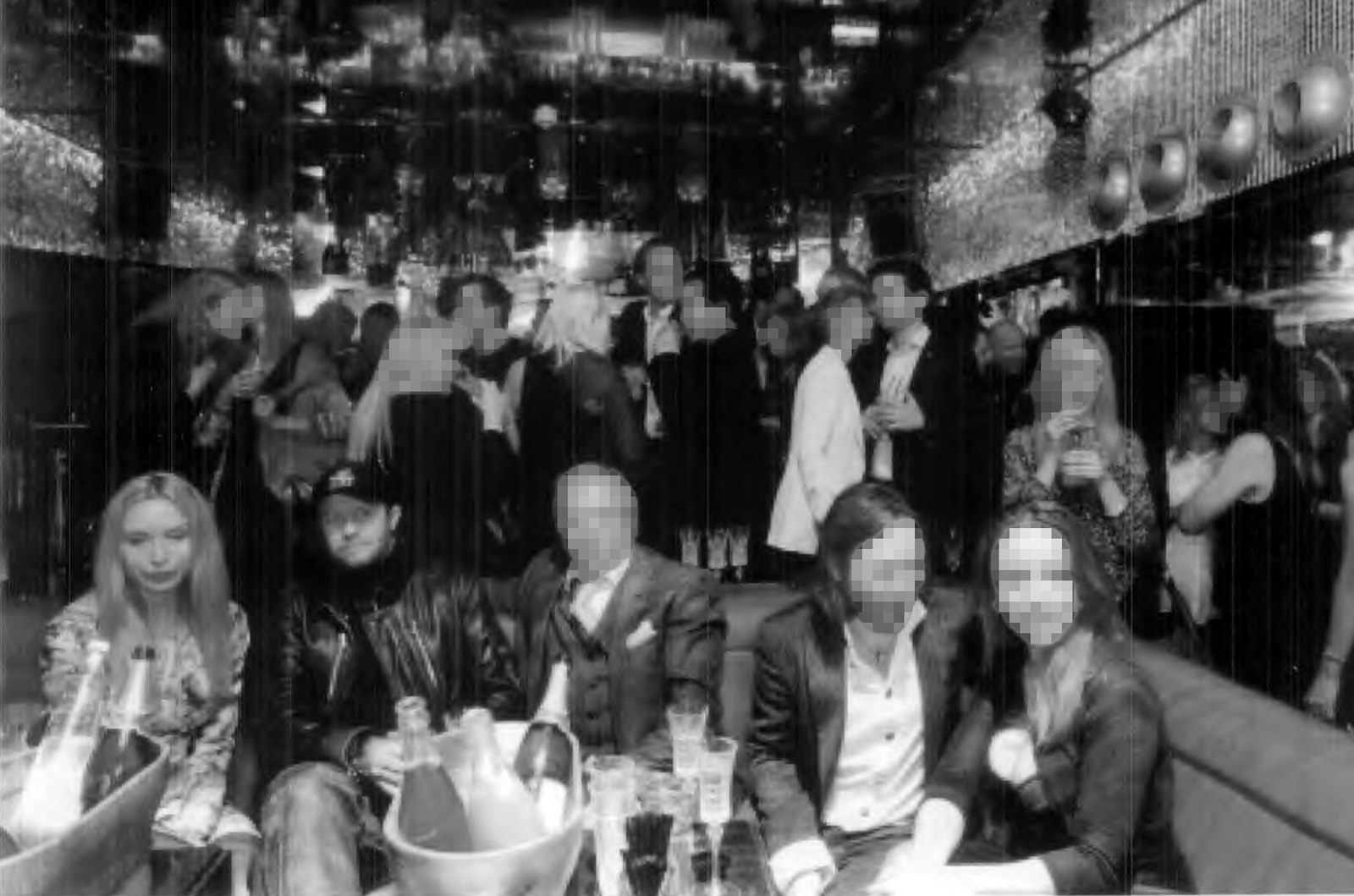
Later, Young would tell friends that he had been dangled out of a window at the Dorchester by “heavies” working for the Russian mafia.
His wife’s spies followed him to the second hotel, where they eavesdropped on his room. In one phone call taped by the surveillance team, Young discussed handing over “the paperwork” to an individual in Russia and told an unknown caller that Berezovsky was “keeping his head down".
Young’s daughter Sasha said he also called her on one occasion during this period, sounding “very erratic and very scared” and warning her to get herself, her sister, and their mother somewhere safe.
And that was when Michelle was approached, out of the blue, by a man with a message from Moscow. The Russian government wanted her to pay them a visit.

The snow was lying thick on the ground when the Aeroflot jet touched down at Sheremetyevo International Airport on a bitter February morning in 2012. Michelle and her lawyer swept through arrivals and climbed into a car sent by the man who had arranged their visit: Howard Hill, a London-based private investigator who boasted of a direct line to the Russian government.
Hill had suggested a trade: Michelle would tell prosecutors about Young’s business dealings in Russia and his connection to Berezovsky, and the prosecutors would tell her what they knew about Young’s money. By now, Young had been forced to answer questions about Project Moscow in court, and files relating to the deal had been found on a hard drive seized on the orders of the judge. The ruse to funnel Berezovsky’s money into the development had been unearthed, and Young had characterised the clandestine payment as a “personal loan” to help him “keep the scheme alive”. Correspondence shows Michelle’s lawyer instructed an assistant to sort through the documents relating to the scheme because “we will need them copied for russia”.
Michelle flew to Moscow to meet Vadim Yalovitsky, Russia’s deputy prosecutor general. Yalovitsky was such a loyal and trusted servant of the Kremlin that he had been given a critical task in thwarting the Scotland Yard detectives who flew to Moscow to investigate Litvinenko’s death in 2007: He restricted access to one of the men charged with Litvinenko’s killing, Dmitry Kovtun, whom the Russian government was shielding from prosecution.
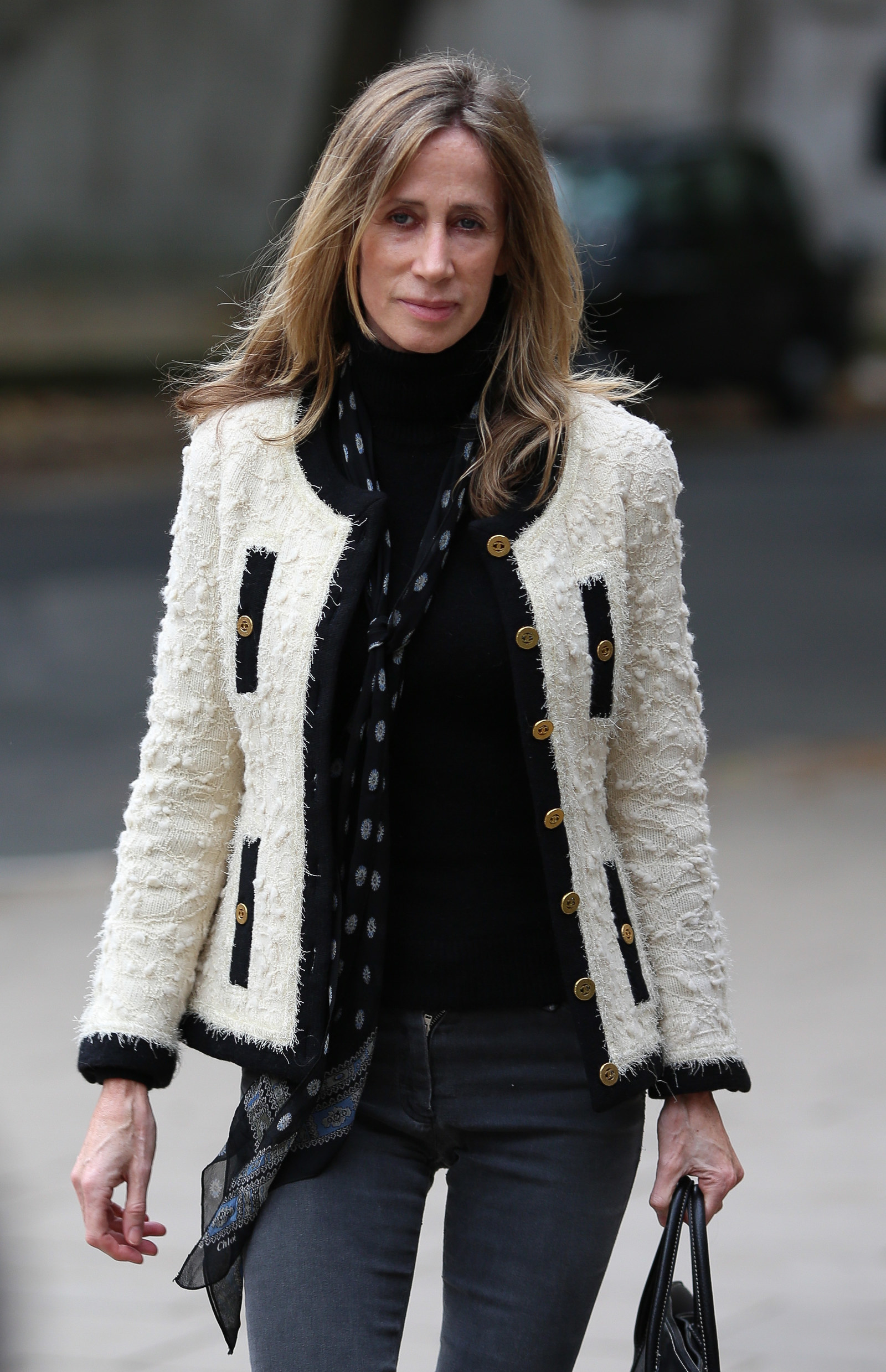
Details of Michelle’s encounters in Moscow are contained in a cache of emails and handwritten notes obtained by BuzzFeed News. At their 13 February meeting, Michelle said, Yalovitsky told her straight up that prosecutors “had information on Scot”. There was, however, a hitch: The investigator who had the files had been taken to hospital, so they wouldn’t be able to see them that day. But, Michelle recalled, the prosecutor said that shouldn’t prevent her from turning over the hard drives she had brought with her. She declined.
The next day, after a sumptuous dinner with a group of prosecutors and government officials, Hill emailed Michelle’s lawyer about a senior member of the FSB who had a strong interest in Young and said the security agency had “substantial files” on him. Still, Michelle got nothing and flew home.
Over the next few weeks, Hill asked periodically for information on behalf of both the prosecutor and a mysterious “second group” in Russia who asked for recent pictures of Young and passport details because, Hill explained, they “suspect that, some years ago, he may have entered and left Russia using false ID”. Michelle’s lawyer supplied Young’s date of birth and a selection of photographs, and discussions continued about making a second trip to Russia to meet the chief investigator. But then the door slammed shut. Hill reported that the prosecutor’s office told him they were no longer prepared to cooperate. Hill declined to comment for this story.
By now, Russian prosecutors were closing in on Berezovsky’s global business empire. Cooperating authorities in France and Switzerland had seized yachts and luxury villas, and tens of millions of dollars had been frozen in his network of foreign accounts. As the Kremlin's stranglehold on his finances tightened, Berezovsky launched a series of exorbitantly expensive lawsuits to try to claw back funds from former associates including Fomichev, Patarkatsishvili's widow, and, most ruinously, the Chelsea Football Club owner and oil tycoon Roman Abramovich.
Disputes had also broken out over the New World Value Fund – the trust originally used by Stephen Curtis to hold cash and assets extracted from Russia by Boris and Badri. Secret documents reveal that Young had stepped in to help broker a peace deal that involved carving up the fund among some of the warring parties. The deal was sketched out by Young in handwritten notes found in his flat, and other documents among his papers suggest the agreement was sealed in 2011. This appears to have been the last deal Young did with Berezovsky before both men died. And, the following year, it came under scrutiny from a dangerous adversary in Russia.
Lugovoy had returned from the mission to poison Litvinenko in London to a position in the Russian parliament, which remains tightly under Kremlin control and provided him with immunity from criminal prosecution. The sandy-haired, blue-eyed assassin took to the floor of the Duma in December 2012 to deliver a thundering speech calling for a crackdown on all those found to be providing financial assistance to Berezovsky – his former employer – and in particular those involved in the carve-up of the New World Value Fund.
By now, Berezovsky had lost his lawsuit against Abramovich and was facing financial ruin – meaning his funding of anti-Kremlin political movements had all but run dry. Lugovoy crowed over the oligarch’s demise. “He takes antidepressants, flies to Israel from London economy rather than in his private jet,” he said. But Lugovoy said he had learned that Berezovsky was due to receive a total of $250 million from the sale of the assets in the New World Value Fund – and that the “the infamous tycoon and villain” was plotting to spend a tranche of it financing new anti-Kremlin activities. Lugovoy accused those involved in the carve-up of the New World Value Fund of “sheer cynicism, villainy, shamelessness of the highest degree”. And he said he had handed Russia's top prosecutors and the FSB information about the concealment of properties linked to Berezovsky in Russia, Ukraine, and Georgia.
“Those who cooperated with Mr Berezovsky are actively prosecuted in different jurisdictions; some of them died, and not all by a natural death”
Anyone involved with Berezovsky at this moment had reason to be afraid. In an interview with BuzzFeed News, Fomichev said he supported the Russian government and denied being scared of reprisals over his connections with Berezovsky – with whom he said his working relationship had ended in 2002. But during the lawsuit over the frozen loan, his lawyers argued that testifying could expose him to danger: “Those who cooperated with Mr Berezovsky and even his former and remaining friends are actively prosecuted in different jurisdictions, seek asylum outside Russia; some of them died, and not all by a natural death.” Fomichev told BuzzFeed News that legal move had just been “tactical”.
Months later, another private eye who had previously contacted Michelle, claiming a connection to the FSB, got back in touch. The message she said he delivered was chilling: “Boris Berezovsky was being dealt with, and would end up in a body bag.”

The bathroom door was locked when Berezovsky’s long-time bodyguard, Avi Navama, returned from running errands in the early afternoon of 23 March 2013. There was no reply when he knocked; stranger still, missed calls were backing up on the oligarch’s mobile, which he rarely left unattended. Navama, an ex-Mossad agent who had guarded Berezovsky for six years, kicked down the door. Inside, Berezovsky was sprawled on his back on the bathroom floor with a length of his favourite black cashmere scarf tied tight around his neck. Overhead, a second, frayed length of the scarf dangled from the metal shower rail. Berezovsky was dead.
By the time he met his end, Berezovsky was a broken man. His lawsuit against Abramovich had failed catastrophically, destroying him financially and demolishing his pride. He had been forced to give up his beloved Wentworth Park mansion and was reduced to living at his ex-wife’s home in Ascot, where friends and family alike say he had fallen into a deep depression. He was in such desperate financial straits that he had borrowed heavily from Russian mafia kingpins, several friends and law enforcement sources told BuzzFeed News, but had been unable to find a way to pay them back. Navama and Berezovsky’s daughter Elizaveta told officers that in the previous months, the oligarch had talked about ending it all. And in the bathroom where the body was found, there was no sign of a struggle. Police were quick to announce that there was nothing suspicious about the death.
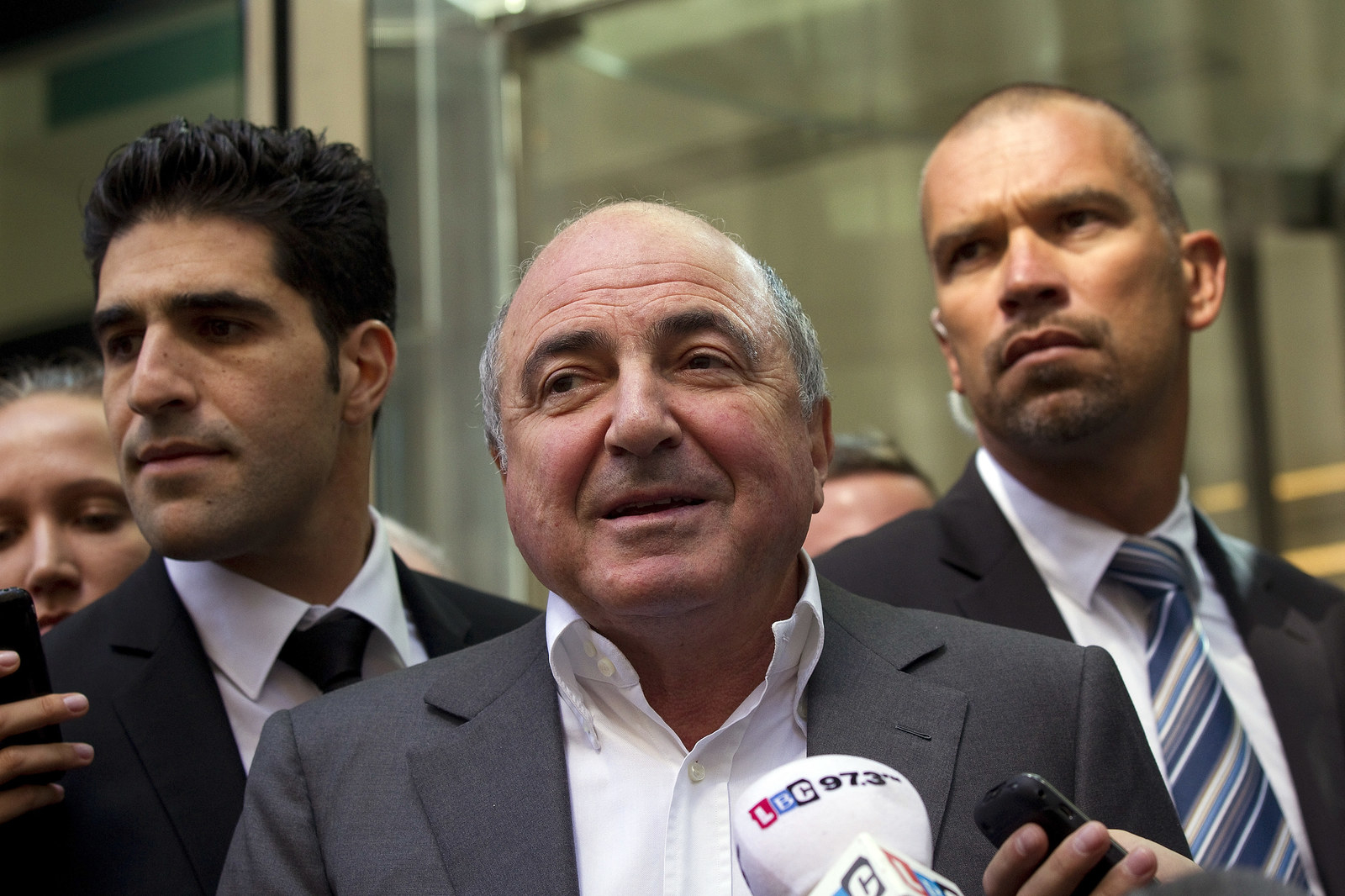
A split divided Berezovsky’s friends, with some who had witnessed his depression believing that he had killed himself, while others were convinced he had finally fallen victim to the teams of Russian assassins who had been hunting him down for years. “Boris was fucking whacked,” said Brown. Lord Bell, another close friend, said there was no doubt in his mind about who was behind Berezovsky’s death: “If you upset Putin, you disappear.” Members of his family, too, were convinced he had been murdered – and they were not prepared to let the police case go unchallenged.
Berezovsky’s inquest opened a year later in a flurry of publicity. Officers from Surrey police and Scotland Yard arrived in force to make the case that the oligarch had taken his own life. Squaring up to them was Elizaveta, Berezovsky’s adult daughter, who was there to argue that her father had been murdered at the behest of Vladimir Putin. The coroner, Peter Bedford, heard from Dr Simon Poole, the Home Office pathologist who had conducted the postmortem and concluded that Berezovsky’s injuries were consistent with hanging. But Elizaveta had enlisted an eminent German asphyxiation expert, Dr Bernd Brinkmann, to examine photographs of Berezovsky’s body, and he announced that “the strangulation mark is completely different to the strangulation mark in hanging” – circular, instead of V-shaped. And the first paramedic on the scene told the inquest it was “strange” that Berezovsky’s face was “quite a deep purple” when when victims of hanging are usually pale.
“I can think of many people interested in my father’s death,” she said. Asked if she knew who, she replied: “Yes, I think we all know”
There was also a fresh wound on the back of Berezovsky’s head and a fractured rib, as well as the presence of an unidentified fingerprint on the shower rail. The police case was that Berezovsky sustained the injuries when his body fell from the shower rail and concluded that “we are content and believe Mr Berezovsky took his own life”. But Elizaveta offered the inquest a very different perspective: “I can think of many people interested in my father’s death,” she said. Asked by Bedford if she knew who these people were, she replied: “Yes, I think we all know.” The Russian government had wanted to silence her father, she said, and she believed they had succeeded. “He was saying that Putin was a danger to the whole world and you can see that now,” she said.
As a result of the conflicting testimony, the coroner said he could not determine beyond reasonable doubt the cause of Berezovsky’s death. He recorded an open verdict.
Several senior counter-terror officers, who had been monitoring continual threats against Berezovsky for years, told BuzzFeed News that they would always suspect that he had, finally, been murdered. Walton, Scotland Yard’s former counter-terror commander, said that behind the scenes his department had investigated Berezovsky’s death “very thoroughly” and had not been able to find any evidence of murder, but he would never be able to shake “lingering doubt”. Davenport, another counter-terror officer involved in the Berezovsky case, said that in some cases where Russian assassins “have effectively killed someone and faked suicide”, they do “such a good job of it that medically and legally, you’ve got to say that’s where it all points to” – despite intelligence to the contrary. Sophisticated agents were also adept at planting evidence to make a person appear to have been “saying they feel down, anxious, like they’re losing control” in preparation for a staged suicide, he said.
Behind the scenes, BuzzFeed News has learned, British spies received intelligence from their American counterparts suggesting that Berezovsky was assassinated. Though they could not assert with certainty that the killing was carried out on orders from the Kremlin, the evidence linking the oligarch’s death to Russia was considered compelling, four US intelligence sources said.
Young was, by now, a shadow of his former self: hounded day and night by angry creditors, ever more terrified about the threats he believed he faced, and fighting tooth and nail to suppress the secrets of his dealings with Berezovsky. After seven years, 65 divorce hearings, and three months in prison for contempt, he had still failed to provide a satisfactory explanation for the sudden disappearance of his fortune. The High Court judge was forced to make his final ruling blind. “Doing the best I can, I find that he still has £45 million hidden from this court,” the judge ruled. Young was ordered to give Michelle half of that, and several million more to cover her legal costs. The judge acknowledged that “the Wife will have difficulties in enforcing my order” but told Young “this debt will exist for all time”.
Stephen Jones, the offshore lawyer who arranged the Project Moscow buyout, had remained close to Young and said the hard-drinking, high-living wheeler-dealer had in 2014 made the surprise move of turning to religion. The pair would go to an evening church service every Wednesday and then would have dinner at Jones’ home. But anyone who knew Young could see that he was not at peace – Jones observed on several occasions that he was being tailed by a “rough, unshaven man”, and Brown said Young seemed increasingly “shifty” and “desperate”.
When the awful news finally came on a cold morning in December, Michelle was the first in Scot Young's family to hear it. Shaking all over, she came into her youngest daughter’s bedroom and said: “Your father has jumped off a building.” Sasha didn’t believe it. A few days before, her father had called to tell her he was checking himself into a psychiatric unit to stay out of danger, and he was not due out for several more days.
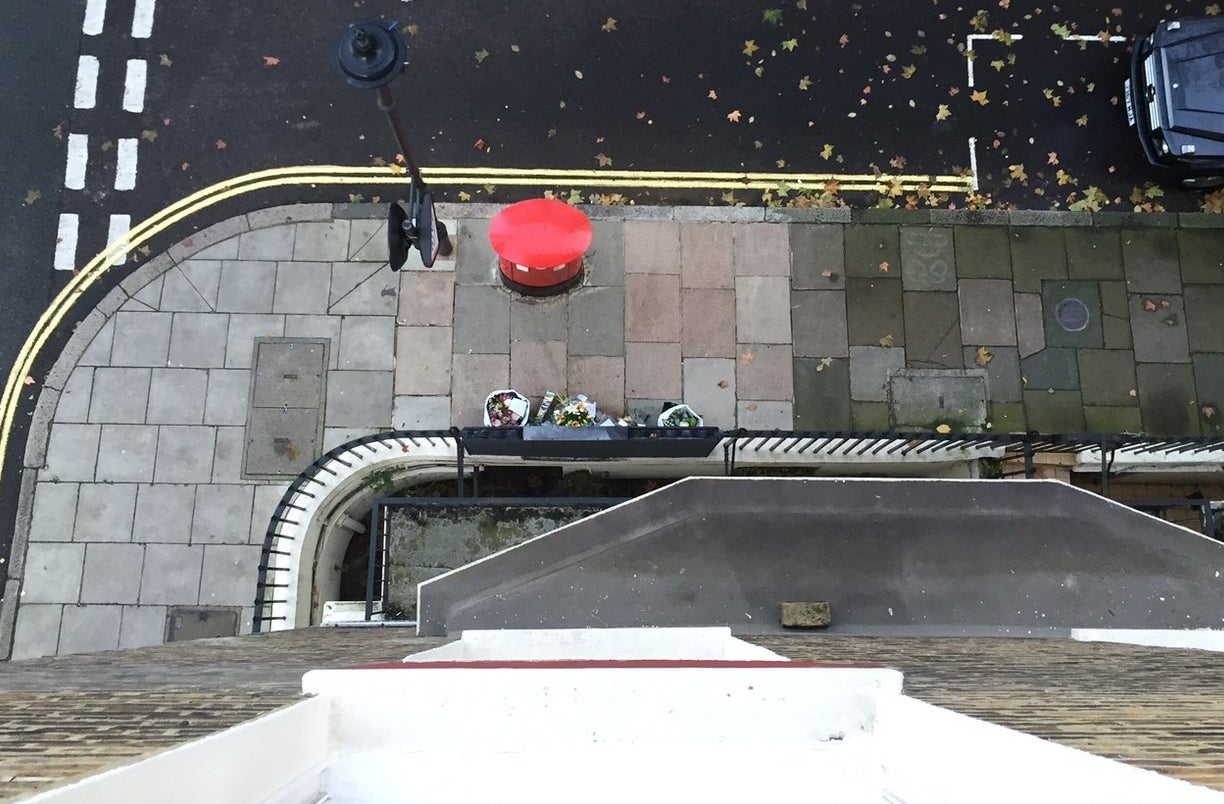
Sasha called her sister Scarlet and the two of them set off to check on their dad in the hospital. But Young wasn’t there. Staff brought them tissues while they phoned the police in tears and begged in vain for facts. Then, googling on their mobiles, they found articles reporting Young’s death: He had fallen four stories from his bedroom window and been impaled on the spikes of the iron fence below – so deeply that the entire section of the railings had to be cut away to remove his body. The two young women left the hospital in shock and threw up outside. “We didn’t only lose our father; we lost him in such a brutal way,” Sasha said.
It wasn’t until around 8pm that the police finally showed up at the door – two days after Young’s fall. Their father had killed himself, the officers said, and the death was not being investigated.

Brown arrived in London the following day, and together with Sasha and Scarlet, started looking for answers.
First, they went to speak to Young’s fiancé, Reno. She told them what she had told the police – that she and Young had split up just before he went into hospital, and he had returned home unexpectedly at around 3:30pm on 8 December, just as she was waiting for a locksmith to come and change the locks. They had a blazing row, Reno said, and Young refused to leave. In the altercation, one of her two phones had accidentally been dropped down the toilet, so after the locks had been changed she left Young inside the flat and set off to buy a new one. On her way, she said, Young called her on her second phone and said: “I’m going to jump. Stay on the phone and you will hear me.” She hung up, and minutes later he had fallen – at around 5:15pm. Reno declined to speak to BuzzFeed News.
“As soon as I saw the window I knew that he couldn’t have done it”
Sasha and Scarlet couldn’t square that account with the calm, cheerful calls they had received from their father in the same period. A call to Scarlet at 5:08pm had gone to voicemail, and she still had the recording. “Hi Scarlet, just wanted to say I love you loads, miss you terribly, and I’m all okay, don’t worry about me. Love you! Bye,” the message said. She would listen to that message what felt like a thousand times over, trying to make sense of it. A minute later – just five minutes before he fell – he had called Sasha to tell her he loved her too and would call her again in the morning. It isn’t uncommon for those on the verge of suicide to leave messages for their loved ones that don’t betray their intentions – but neither of Young’s daughters could believe that those calls had been meant as a final goodbye.
Next, they went with Brown to examine the scene of their father’s fall. The three of them had driven by the flat the night before, while it was still sealed with police tape, and they had been spooked to see a light in the upstairs window. Now they walked through the door that the police had smashed open and took in the place where Young spent his last moments.
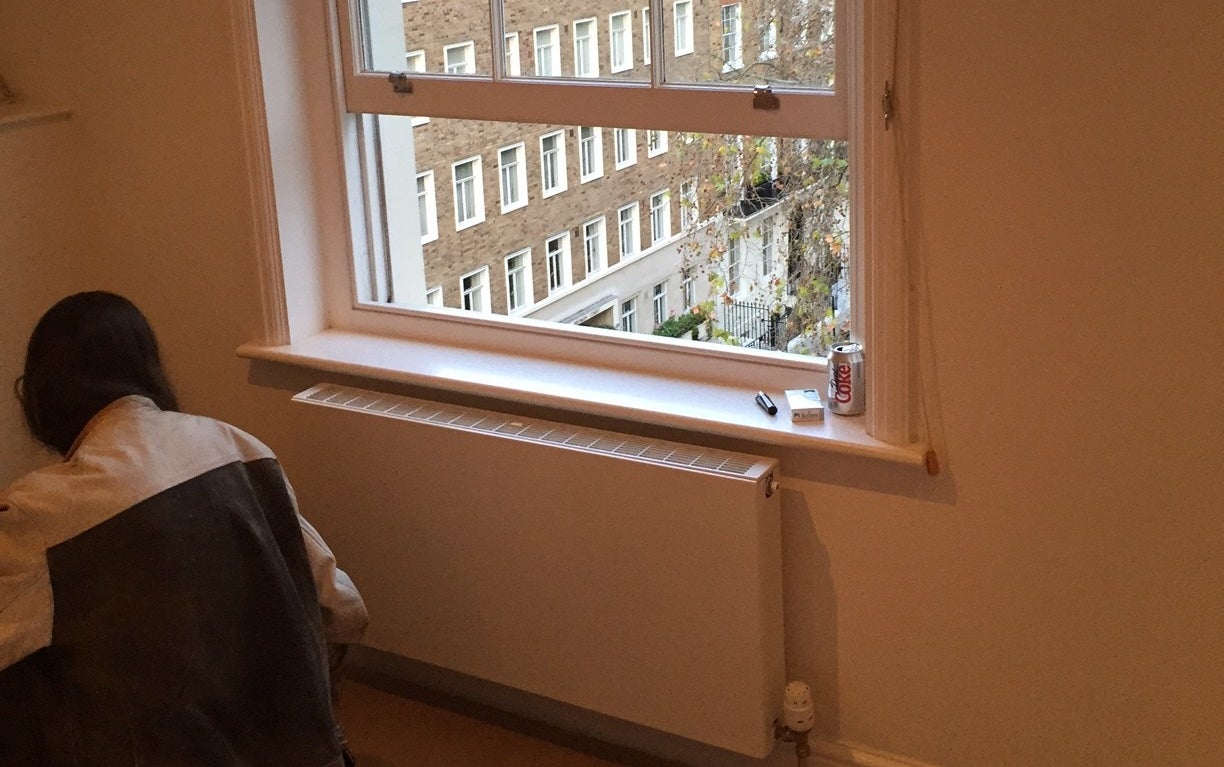
The flat was immaculate, with pristine white walls and cream carpet. They made their way into the bedroom, and went over to the sash window from which Young had fallen. Pulling it up, they found it only opened about 50 centimetres, about the same as the distance from his elbow to his fingertips. “As soon as I saw the window I knew that he couldn’t have done it,” Sasha explained. “That window was so small and he was so tall, it would take a few minutes just to manoeuvre out of it.”
Stranger still, there was a can of Diet Coke, a packet of Marlboro Menthols, and a cigarette lighter lined up neatly in a row on the narrow window ledge. “Lighters are very slim and dainty objects,” said Sasha. “It would have been smashed on the floor, and the Coke would have been spilled if he had manoeuvred himself up. But they were perfectly placed there.” Leaning out of the window, they looked down at the last sight their father’s eyes took in and saw the sharp iron fence looming up below. It made no sense to them that, from such a small opening, he would have hurled himself on to those spikes – especially because he had an almost debilitating fear of heights. And then, they spotted something that gave them chills.
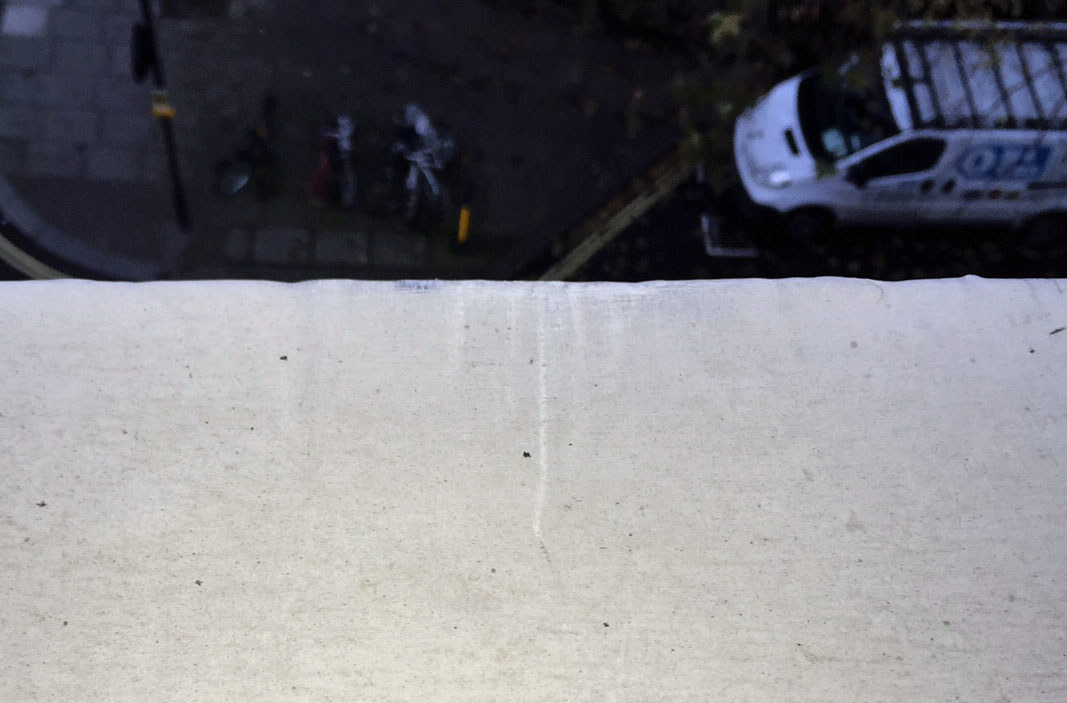
On either side of the outside windowsill, there were rows of faint scratch marks in the dirt, about as far apart as the fingers on a hand. “I guess it’s him fighting for his life,” Sasha said.
They took photographs of the inside of the flat, the narrow window opening, and the marks on the sill. That, already, was more than the police had done. The two young women opened the wardrobe and each put on one of their dad’s big, snuggly jumpers, which still had his scent. Then they set off to confront the police.
They met with Detective Sergeant Christopher Page, the senior officer who had determined that Young’s death was not suspicious. A contemporaneous record of the meeting shows that the two daughters told Page their father had called them the Saturday before his death to say he was in danger. They said he knew “a lot of unsavoury characters” including “a lot of Russian oligarchs” and warned them “constantly” that “we had to be careful, he had to be careful, everyone had to be careful because of these characters”. Several of their father’s friends and associates had died in suspicious circumstances, they pointed out, including Boris Berezovsky and Robbie Curtis.
Page was unmoved. Reno’s account of Young’s last-minute call threatening to jump was enough to preclude any investigation. “From our point of view it was a clear case,” the detective told them. “He has threatened to commit suicide, the method he has described, and that happened.”
Scarlet was incensed. “We want the CCTV,” she insisted. “And has the apartment been properly inspected? Did you take recent fingerprints? Did you do anything?” Page replied: “We wouldn’t have need, given the circumstances.”
Eventually, Page did agree to check the CCTV cameras in the area, though the police would later admit that they never watched the footage until they were ordered to do so by the coroner six months later. At the moment Young fell, every single camera in the square was pointing away from the window.

At the funeral, which 200 people attended, the sisters said they were approached by a man they didn’t know, who warned them to “stop asking questions” about how their father had died because it “wasn’t safe”. And things got stranger when Brown stood to give his eulogy and the vicar introduced him as “one of the last surviving members of Project Moscow”.
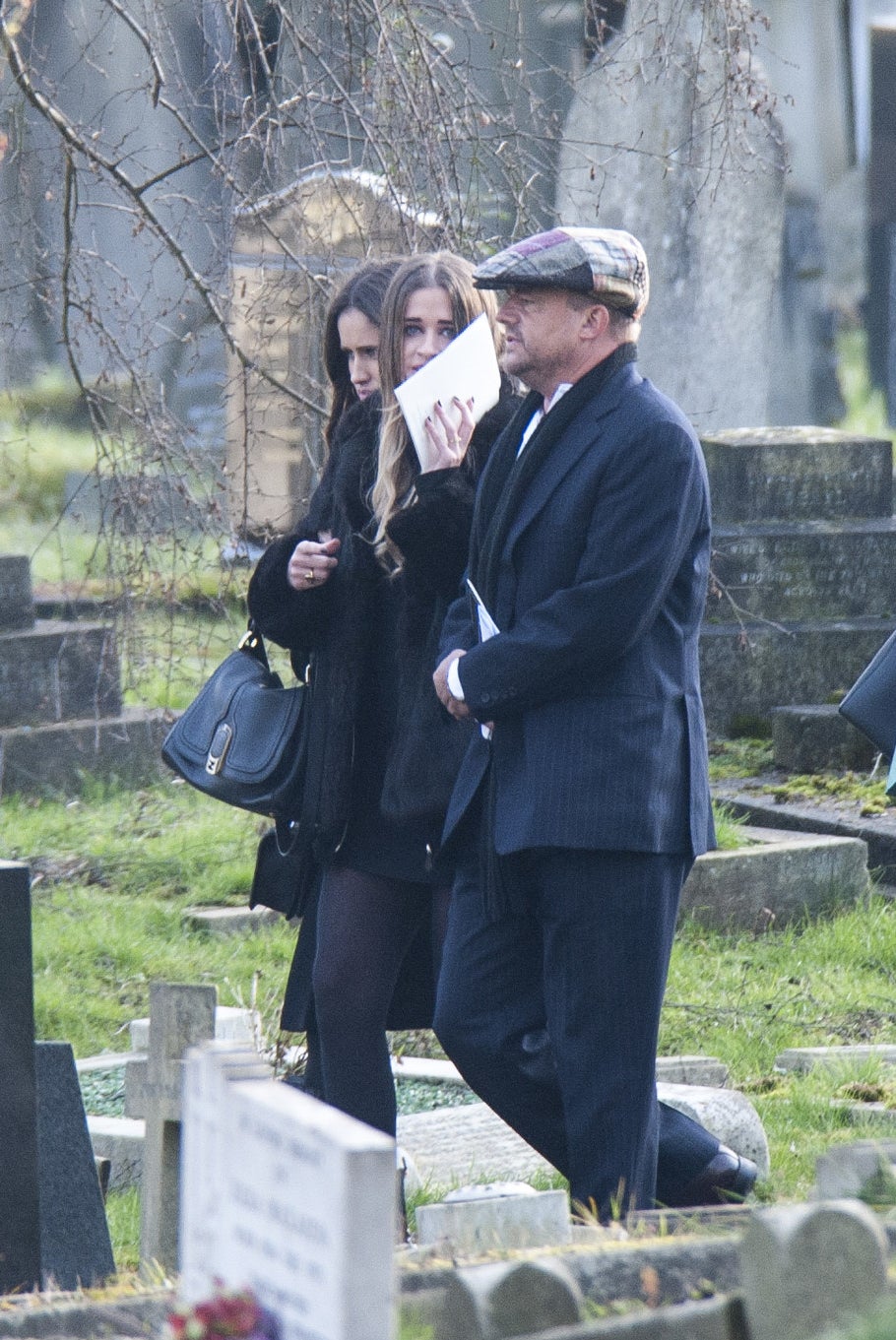
Young’s inquest came in July 2015. Coroner Shirley Radcliffe heard first from Dr Rachel Berg, the psychiatrist who had discharged him from the Gordon Hospital on the afternoon of his death. When Young had admitted himself on 4 December, he had appeared to be in the grip of a “manic episode”, she said, because “he said he was hearing voices and feeling unsafe as people wanted to kill him”. He said he had momentarily contemplated jumping off a balcony, but thoughts of his daughters had stopped him. After four days in the hospital, Young was “stable and well”, denying any thoughts of self-harm. Surmising that the manic episode had been caused by cocaine use, she deemed him well enough to go home, and he left the hospital around 2:30pm.
Berg told the inquest that it would be highly unlikely for Young to have relapsed straight after leaving hospital unless he had used a lot of cocaine. But toxicology tests showed he was clean and sober when he fell. Jaqueline Julyan, a barrister working for Young’s daughters, played the voicemail Young had left for Scarlet, and asked the psychiatrist to comment on what it revealed about his state of mind. “All I can deduce is that the signs of a manic stage are not there,” she replied. “It is normal and matches his state when I discharged him earlier that day.”
Next, Dr Nathaniel Cary, the Home Office pathologist who conducted the postmortem, testified that in addition to injuries “consistent with impalement”, Young also had a “severe head injury”, grazes on his arms, wrist, and thumb, and a cut on the tip of his middle finger. Julyan wanted to know how he had picked up these additional injuries. It was likely that Young “hit something as he fell”, Cary said, adding that “sometimes people hit awnings”. But there weren’t any awnings on the house in Montagu Square, and no one had checked whether it was possible for him to have hit anything on the way down.
As for the wounds on Young’s arms and hands, the pathologist said these were “typical of falls” because “people can grip to stay in”. Except, of course, that Young was meant to have thrown himself out of the window deliberately. The barrister asked if the pathologist had performed any checks on the windowsill to establish whether there were any marks that could account for the injuries. “That would be the responsibility of scene of crime officers,” he said.
When Detective Sergeant Page took the stand, Julyan showed him a picture of the scratches on the windowsill and asked if they had been examined by officers at the scene. “I didn’t see them, it was dark,” he said. The lawyer asked if he had seen them when he went back in daylight. “I didn’t go back,” he replied.
“These things would have been followed if it had been a suspicious death but it was not suspicious”
The detective acknowledged that the window was so small as to be “difficult to climb through” and he posited, stretching his arms forward like Superman, that Young had gone out “front first with hands out”. Why, Julyan wanted to know, had officers closed the window before it was photographed, rather than leaving it open to document the narrow gap through which Young was meant to have jumped? “This was as the weather could change and we didn’t want to lose the forensics,” Page replied. But the officers had not carried out any forensic work. The barrister asked how it was that Young had landed on the railings – a metre out from the wall. “I’ve got no idea. These things would have been followed if it had been a suspicious death but it was not suspicious,” the officer replied.
At the end of the hearing, the coroner said that while she believed “the police are entirely correct in that there is no suspicious circumstances”, she also could not ignore the evidence from Young’s daughters and several of his friends that he had sounded calm and rational on the phone in the minutes before his death – and she noted that there was no evidence to explain the marks on the windowsill that the police had missed, or the trajectory of Young’s body from the window on to the railings. “I have concluded that there is inconclusive evidence to determine his state of mind and intention when he came out of the window,” she said. She recorded an open verdict.
It was a victory for Sasha and Scarlet, who hadn’t wanted their father’s death to go down as a suicide. But they still had no real answers about how their father had met his end. “People can read about it and think how shocking and how terrible it was, but that’s just a story to them and it has been our lives,” said Sasha. “You miss him all the time and it’s not something that goes away.”
“People can read about it and think how shocking and how terrible it was, but that’s just a story to them and it has been our lives”
BuzzFeed News has learned that, while the police shut down the case, dismissed the Russian connection, and rebuffed the concerns of Young’s family and friends, Britain’s spy agencies were secretly asking their American counterparts if his risky dealings in Moscow had finally caught up with him.
Four high-ranking American intelligence sources told BuzzFeed News they suspect Young was assassinated. And his death is one reason US intelligence officials believe that Russia’s campaign of targeted assassination around the globe is accelerating. “The Kremlin has aggressively stepped up its efforts to eliminate and silence its enemies abroad over the past couple of years,” one high-ranking official said. “Particularly in Britain.”

In our next story, BuzzFeed News will reveal another suspected assassination – this time of a public servant working on a highly sensitive assignment – that the British authorities have treated as suicide.
Got a tip? You can email tips@buzzfeed.com. To learn how to reach us securely, go to tips.buzzfeed.com.
Watch: BuzzFeed News investigates Scot Young's death
UPDATE
This story has been updated to include a statement from a government spokesperson that was sent after publication in response to earlier questions from BuzzFeed News.
Opening art: Book cover; courtesy Mulholland Books; Tim Lane / Rex / Getty / BuzzFeed





